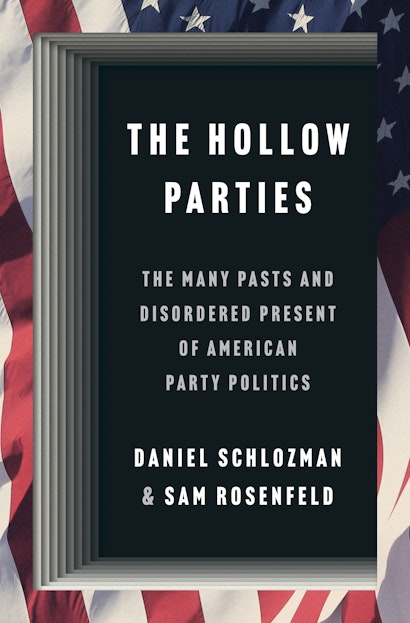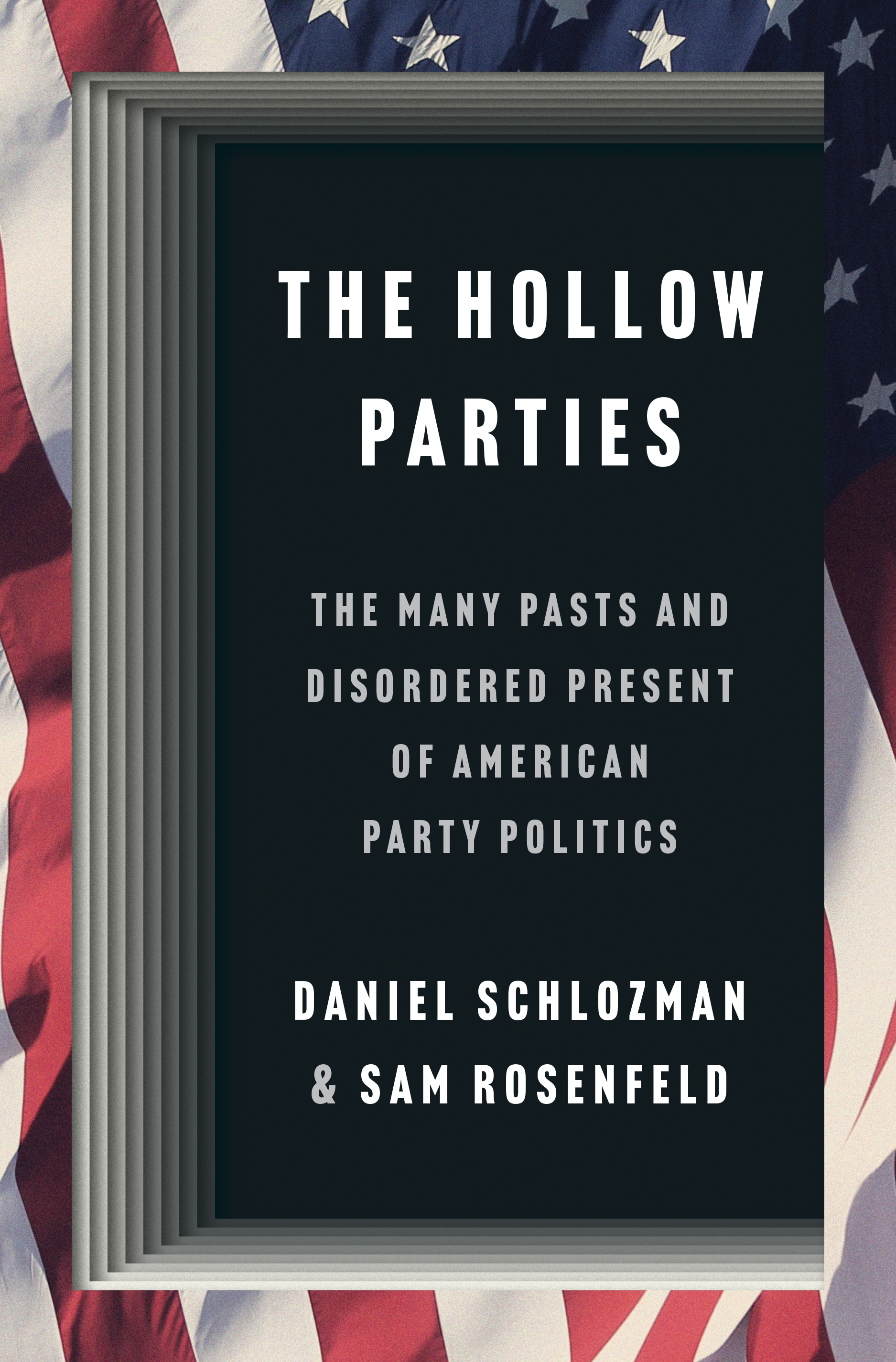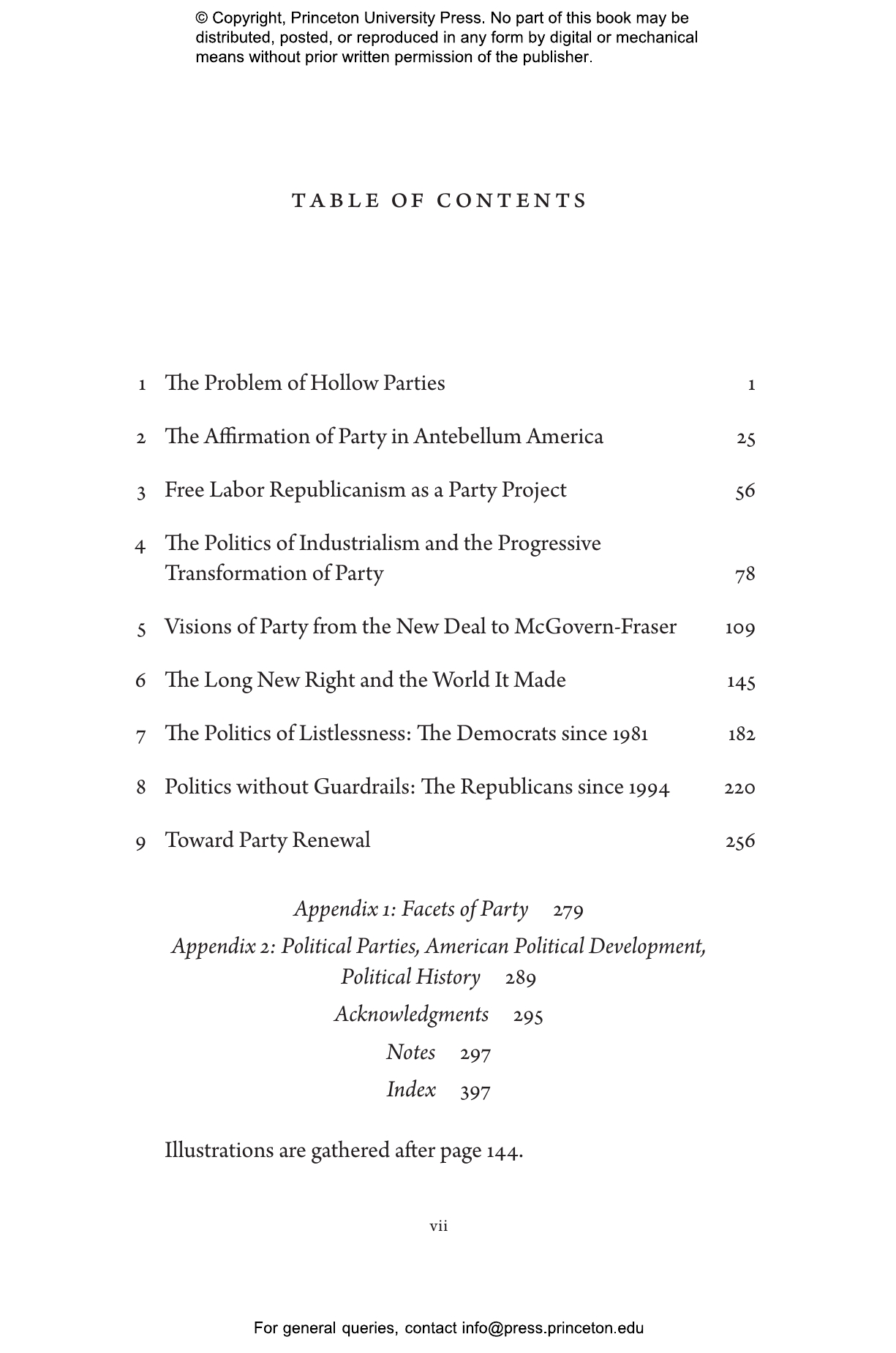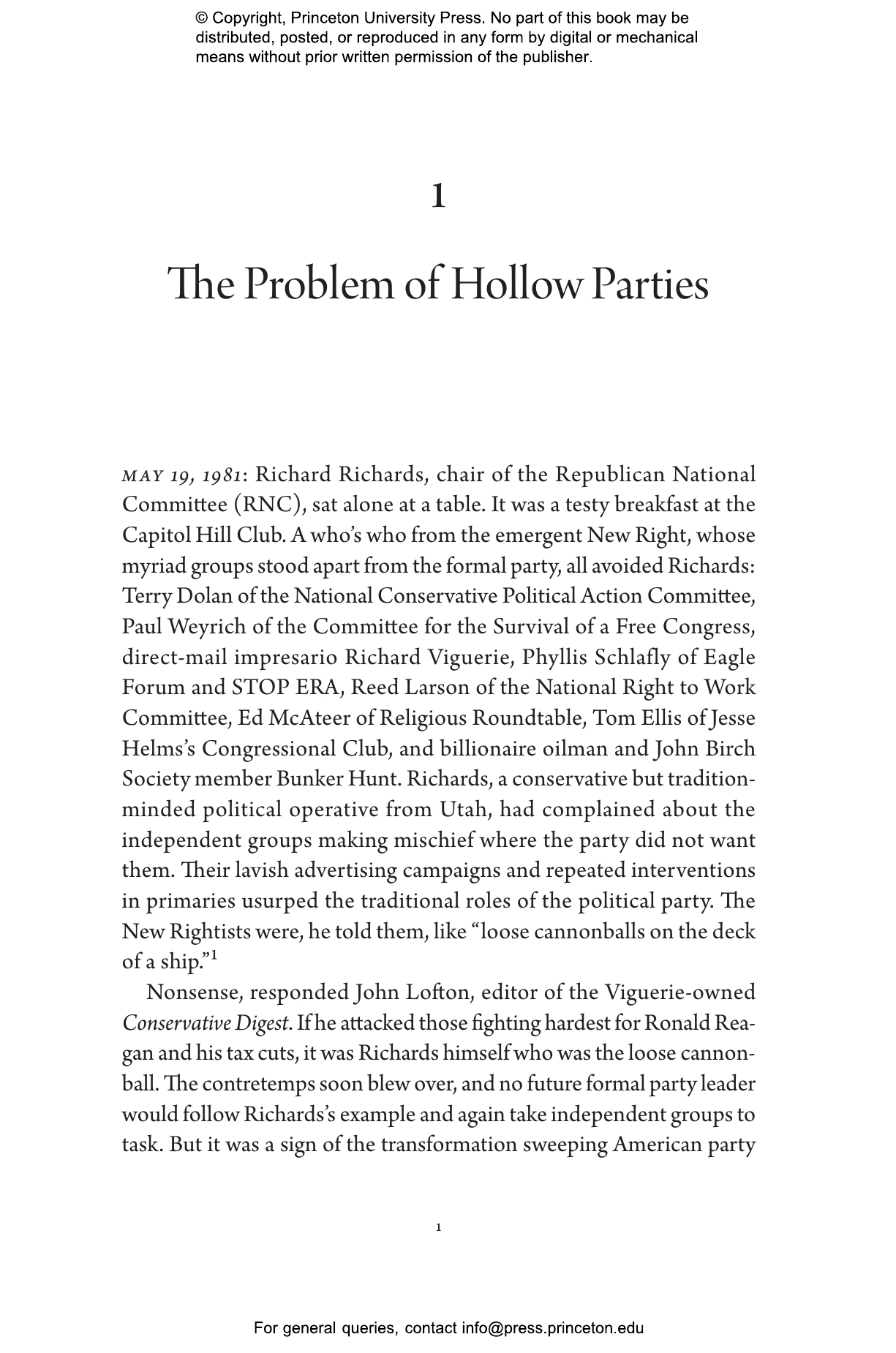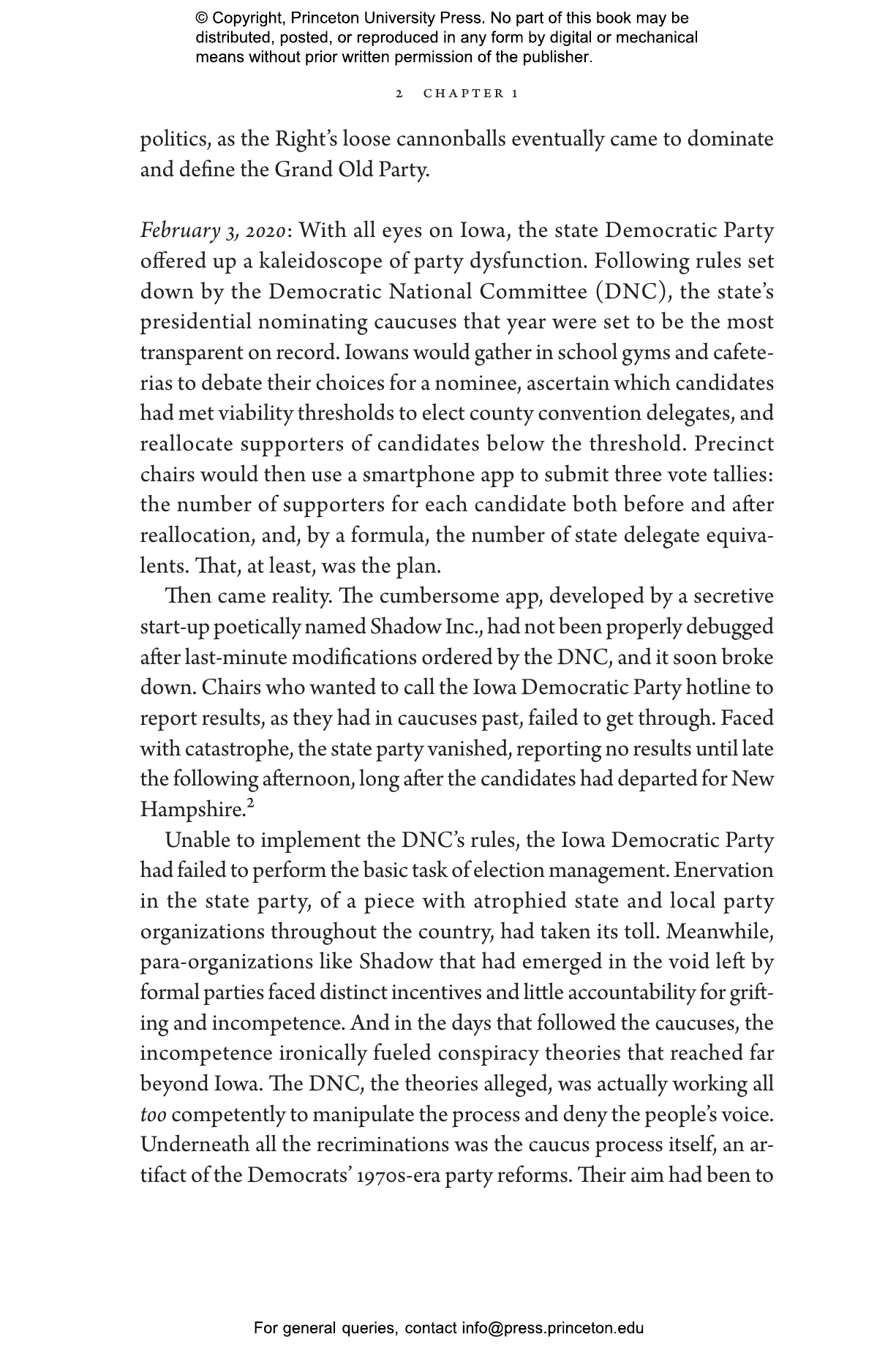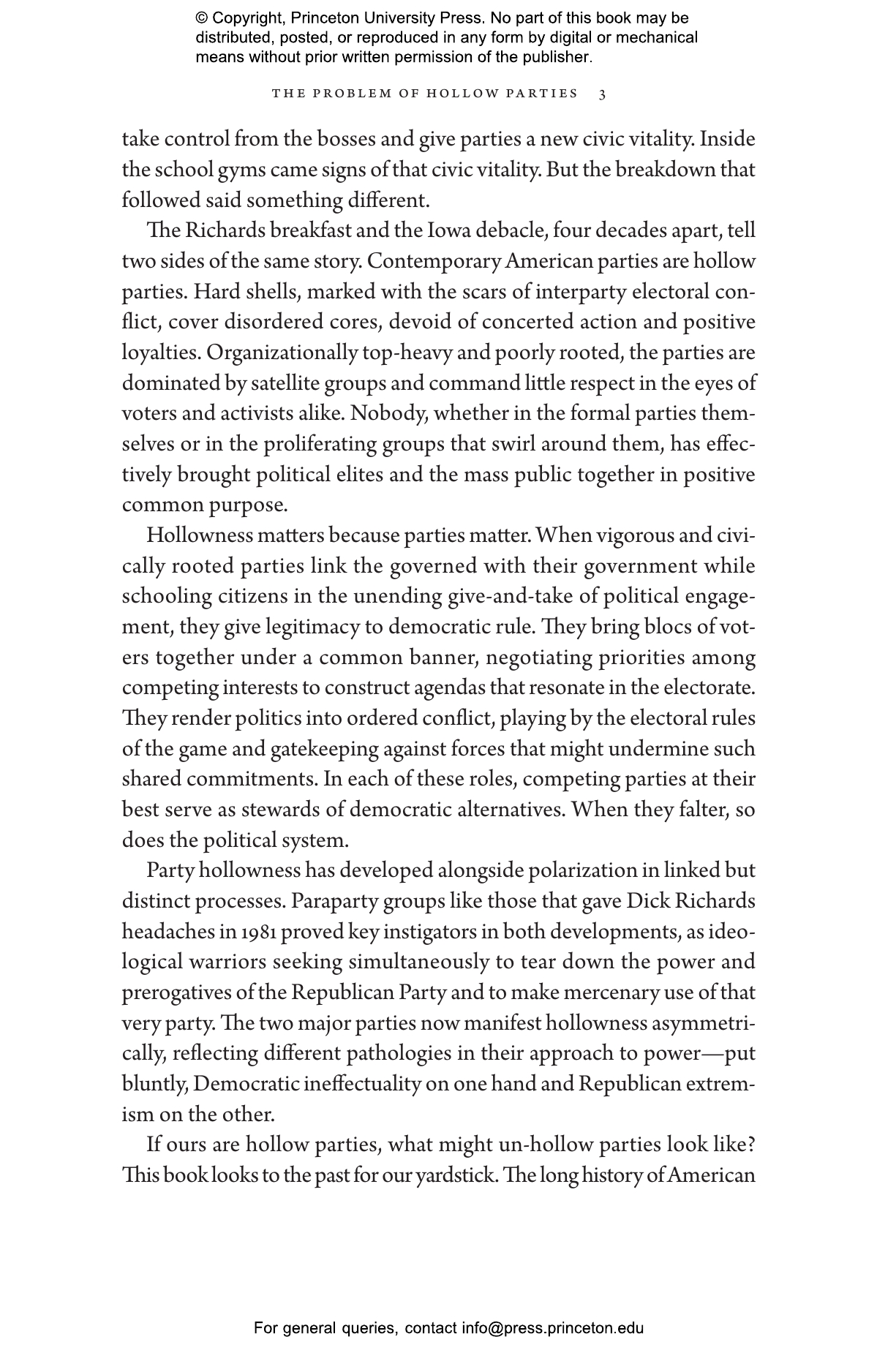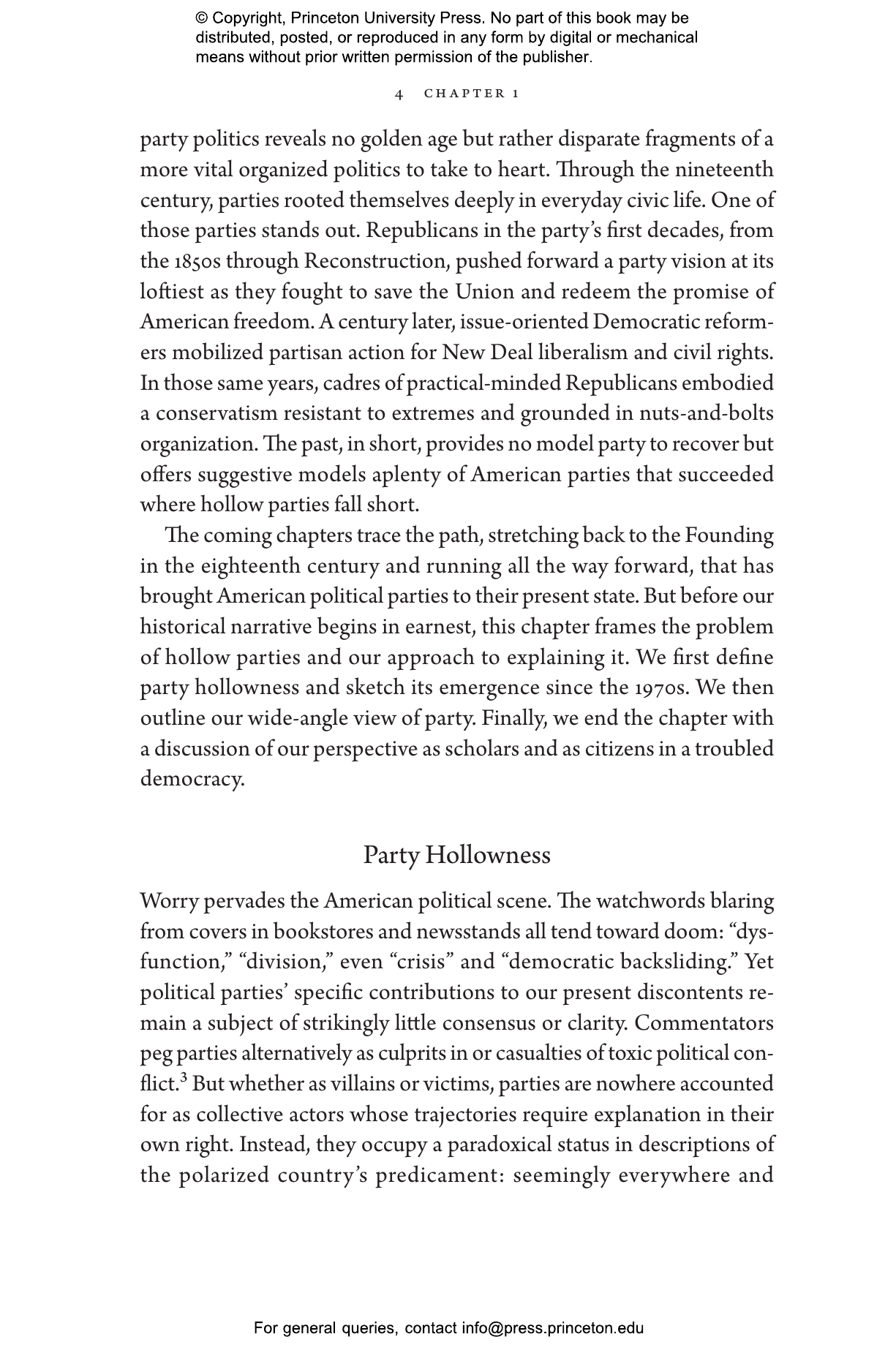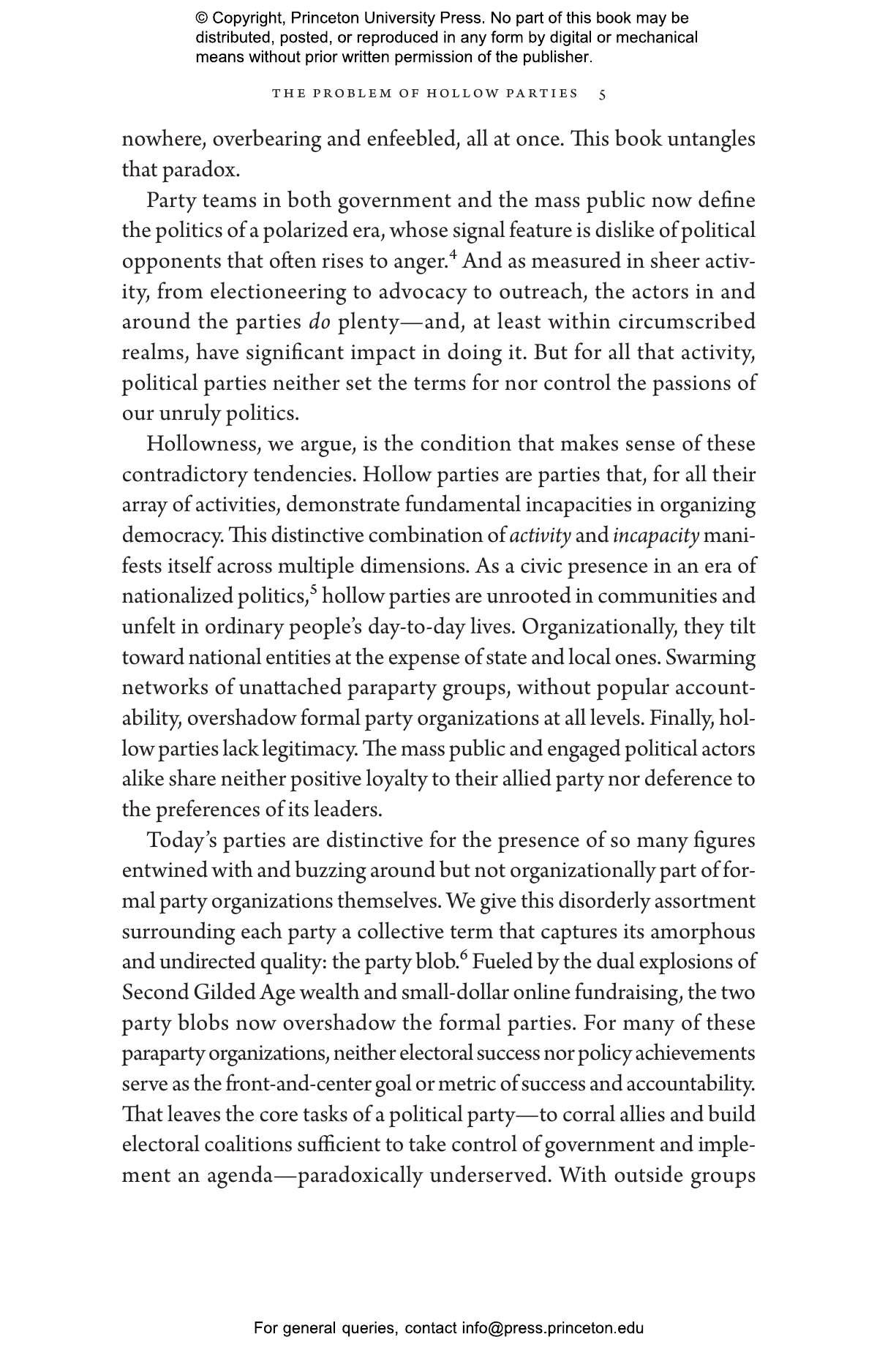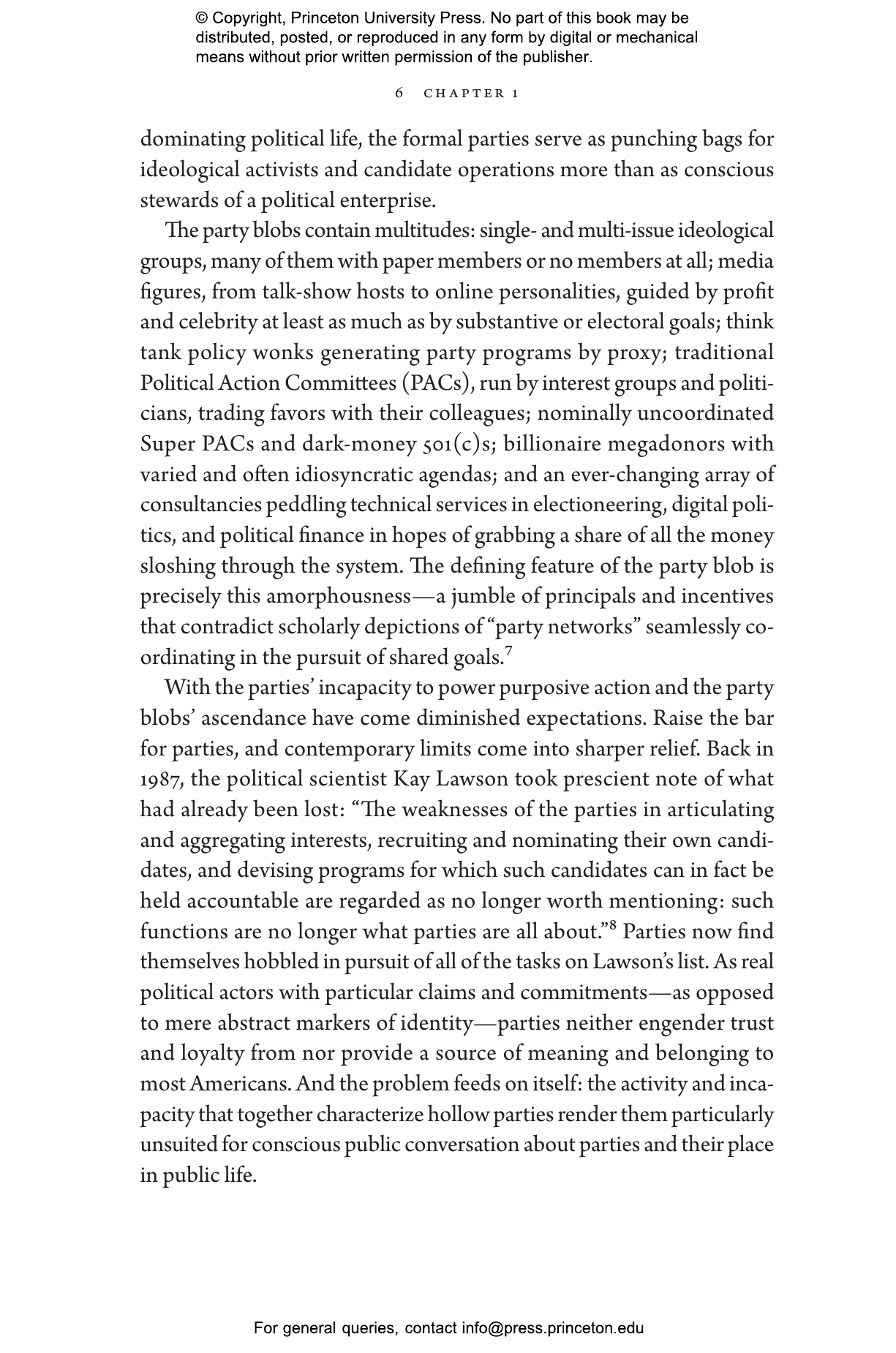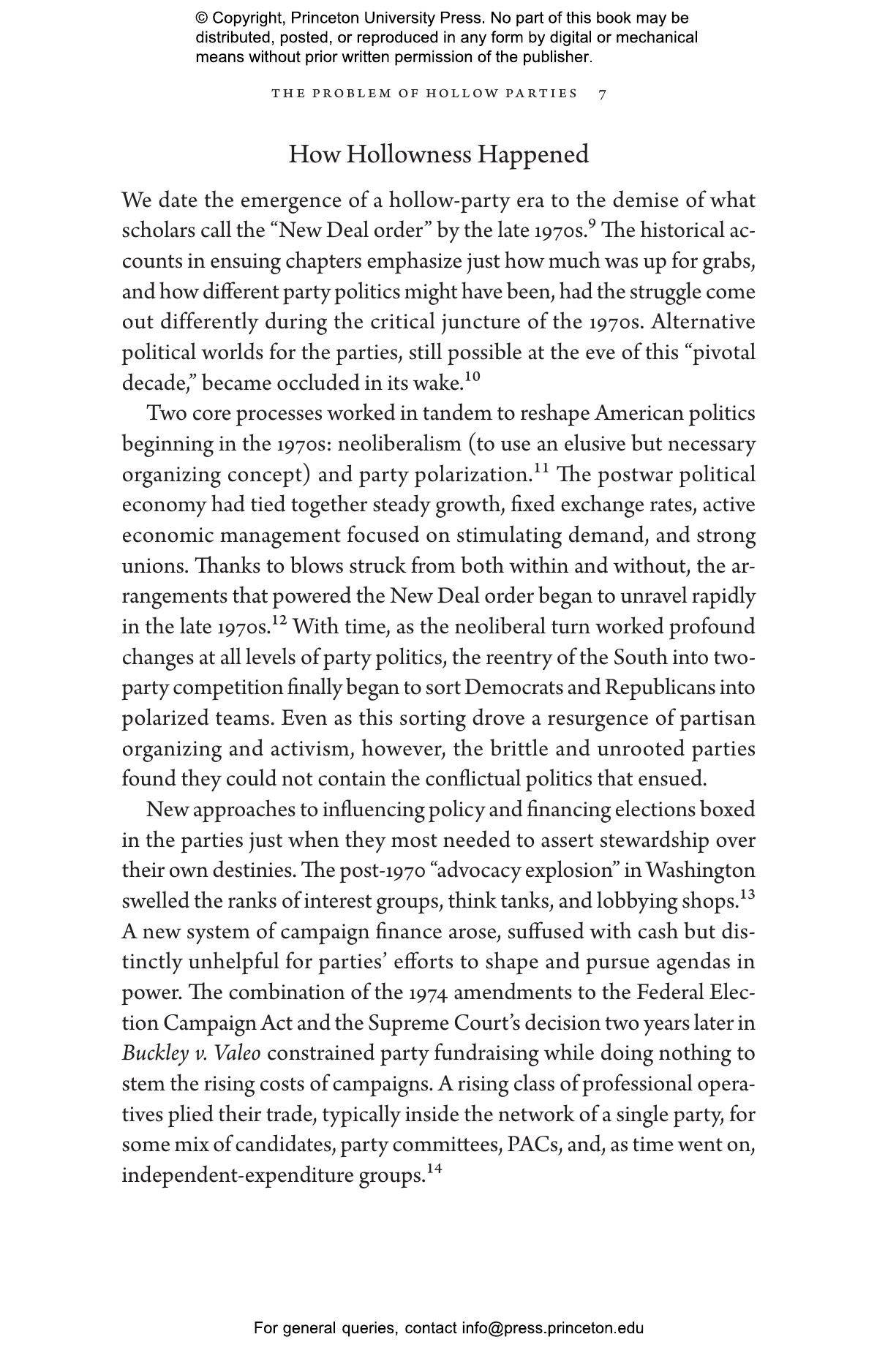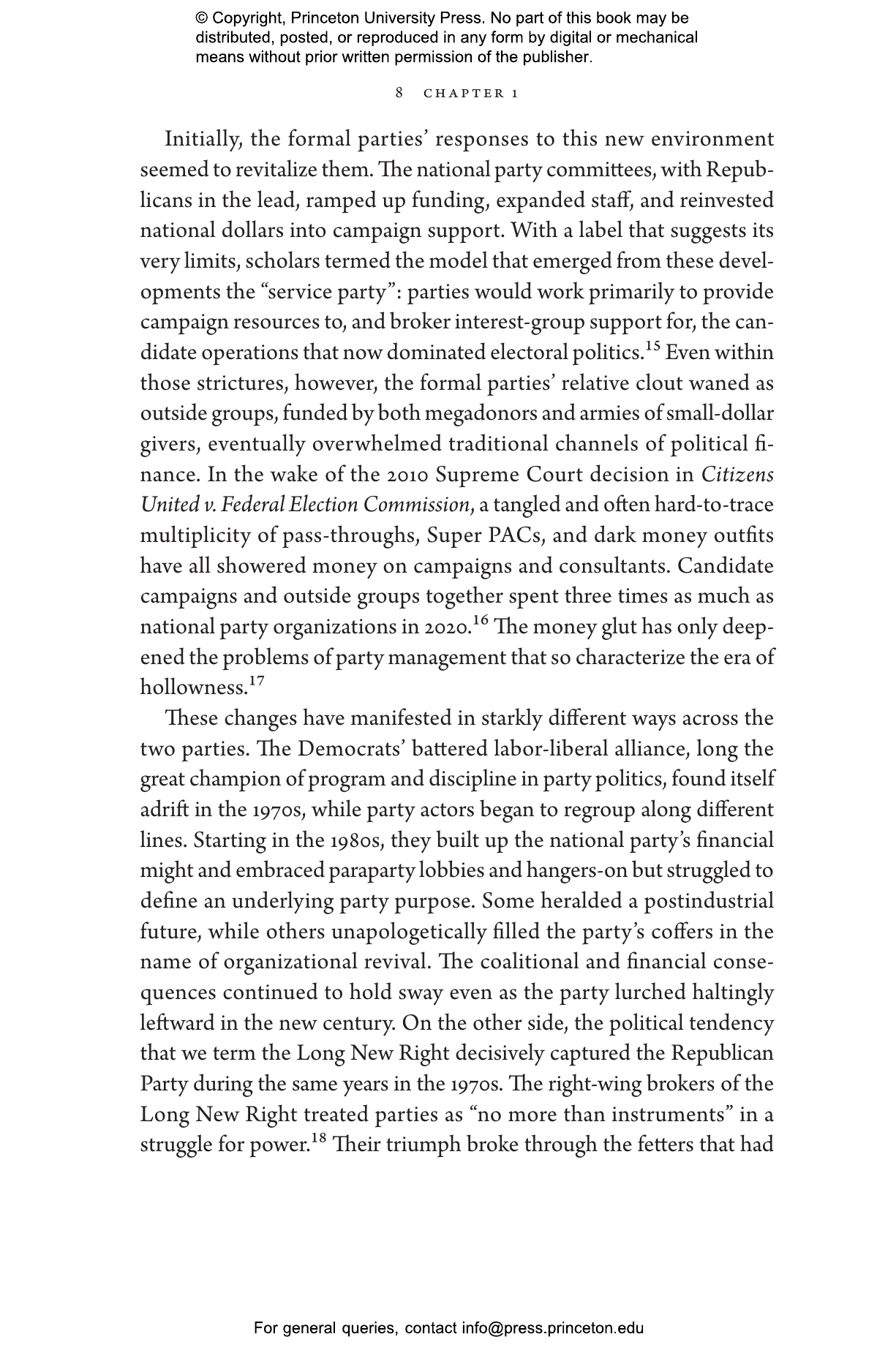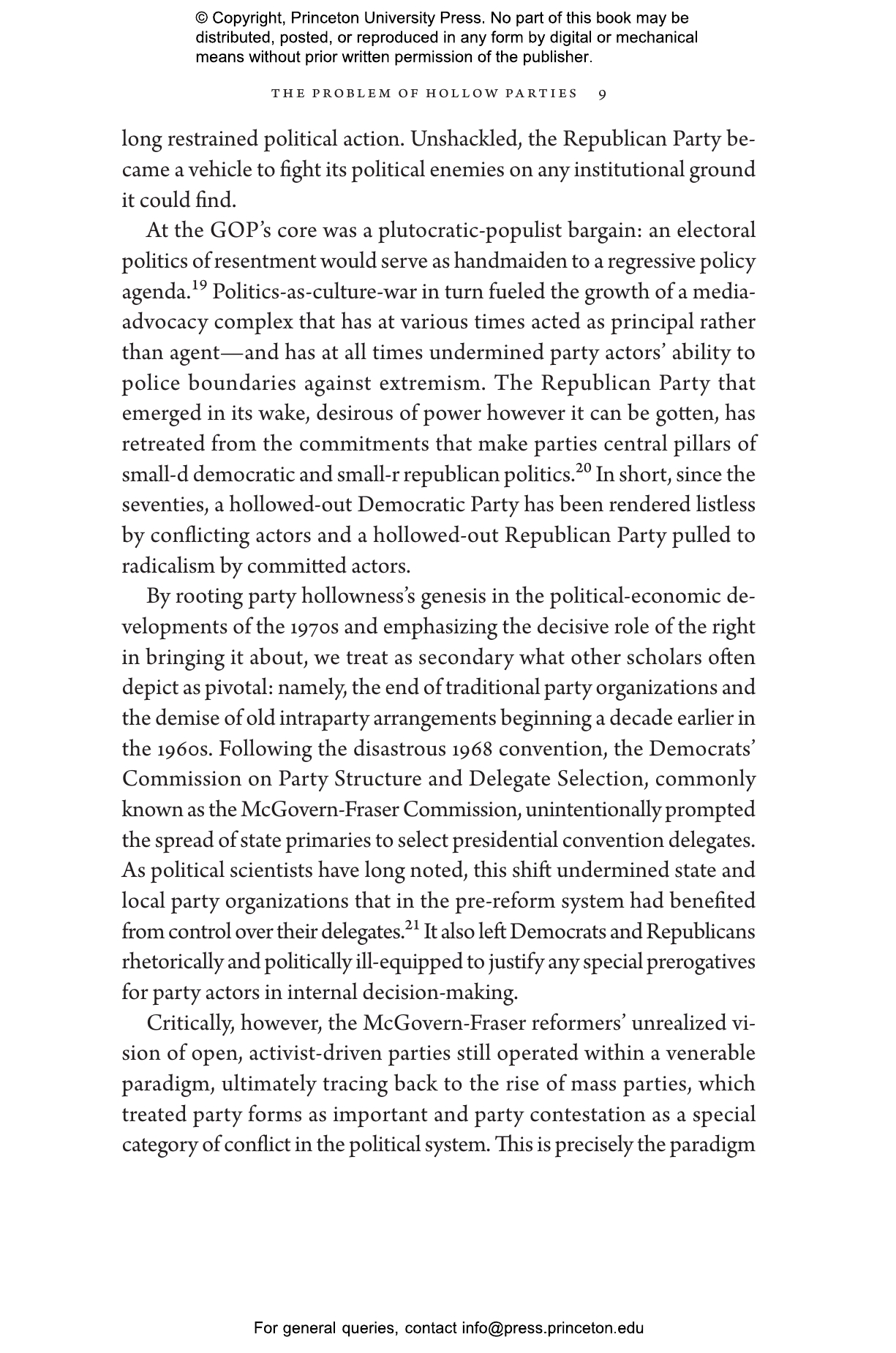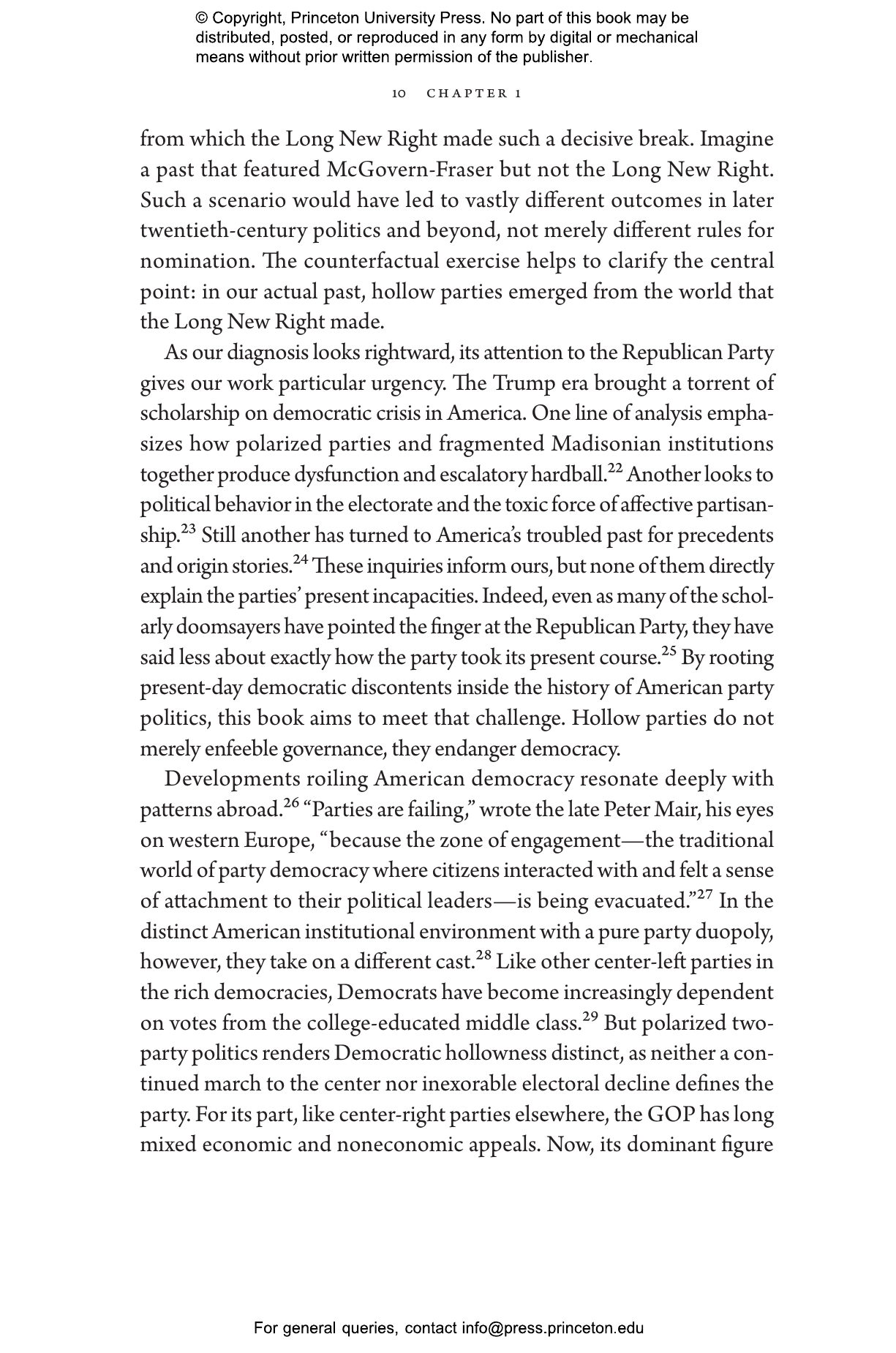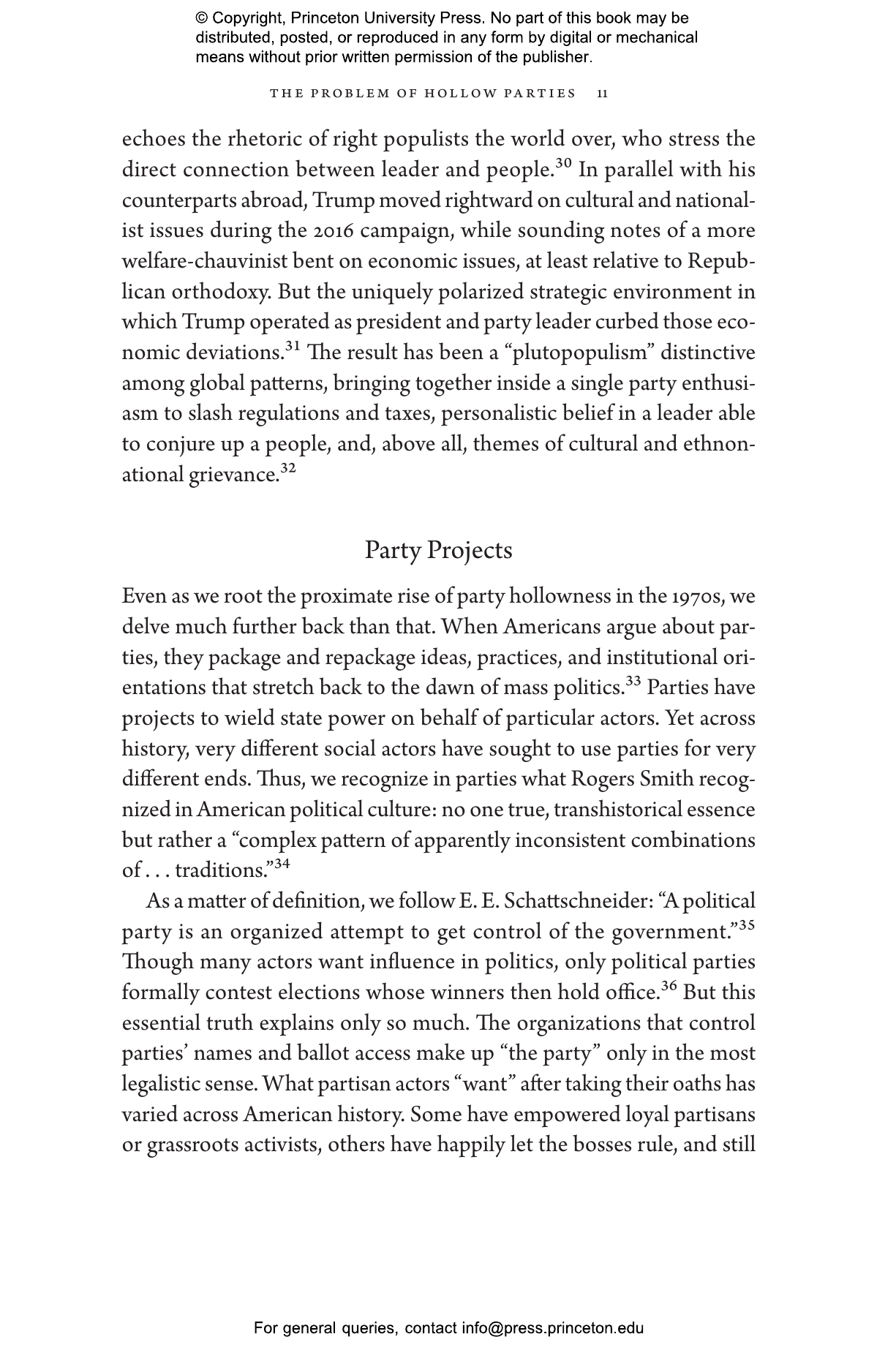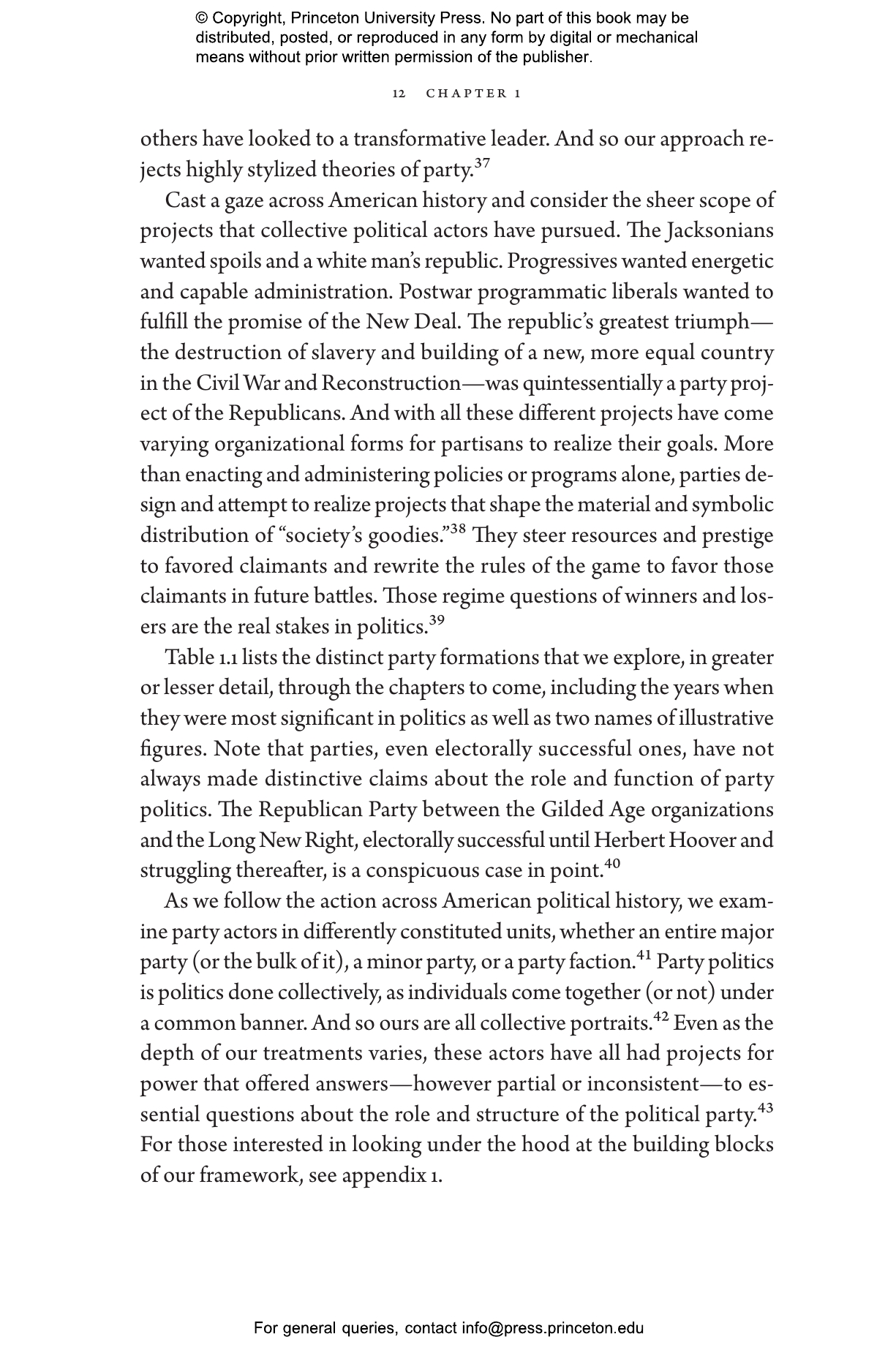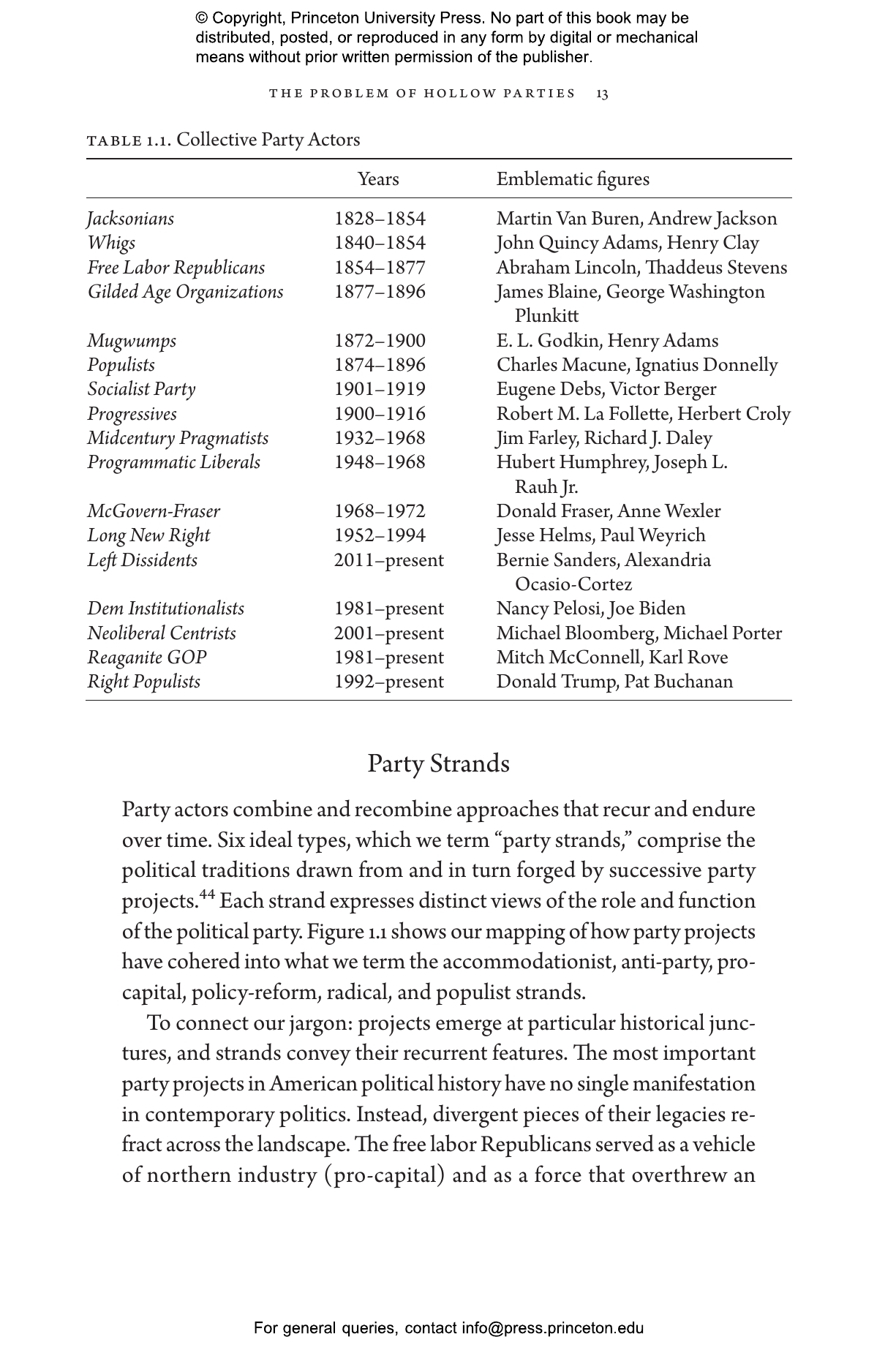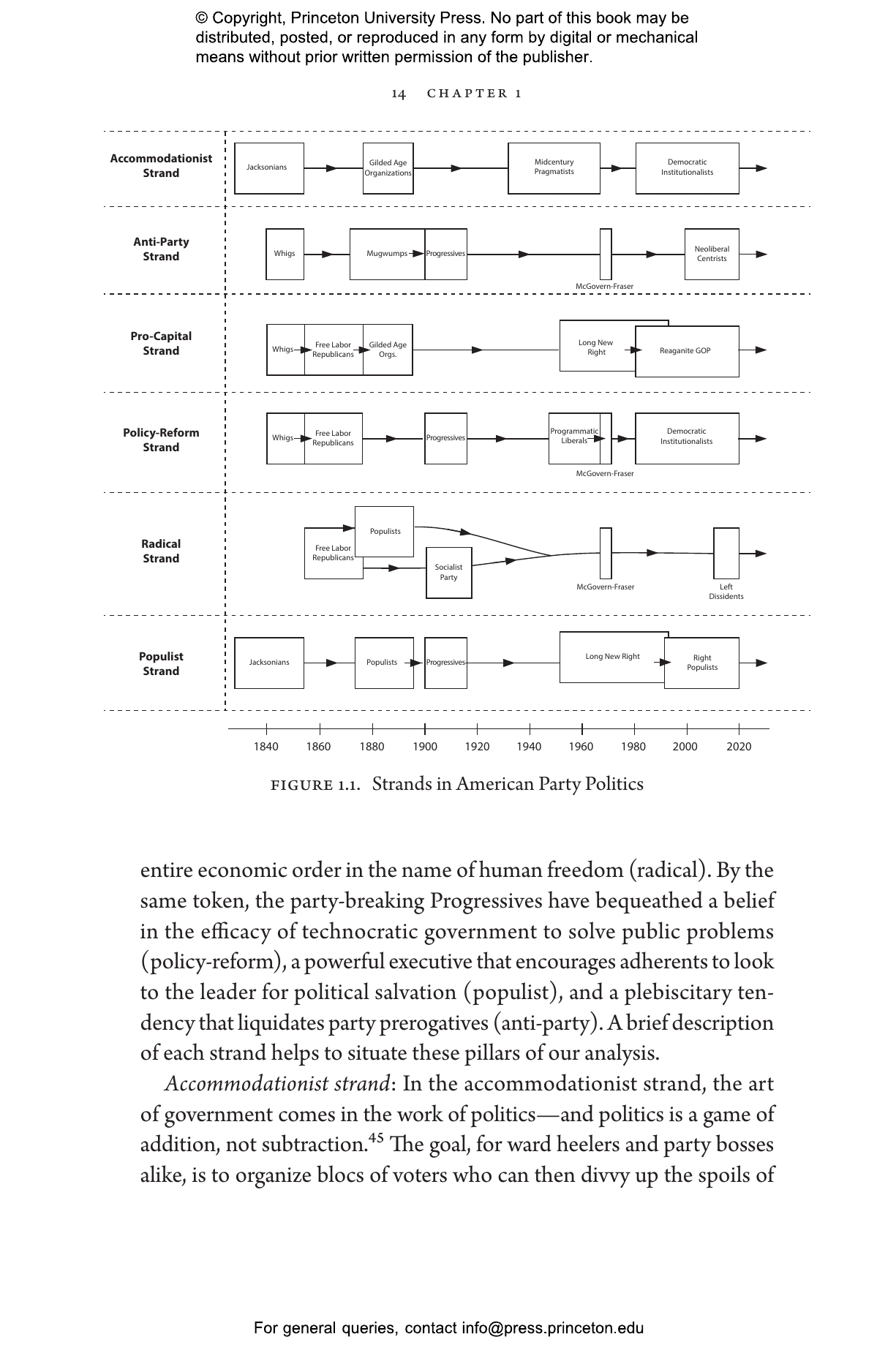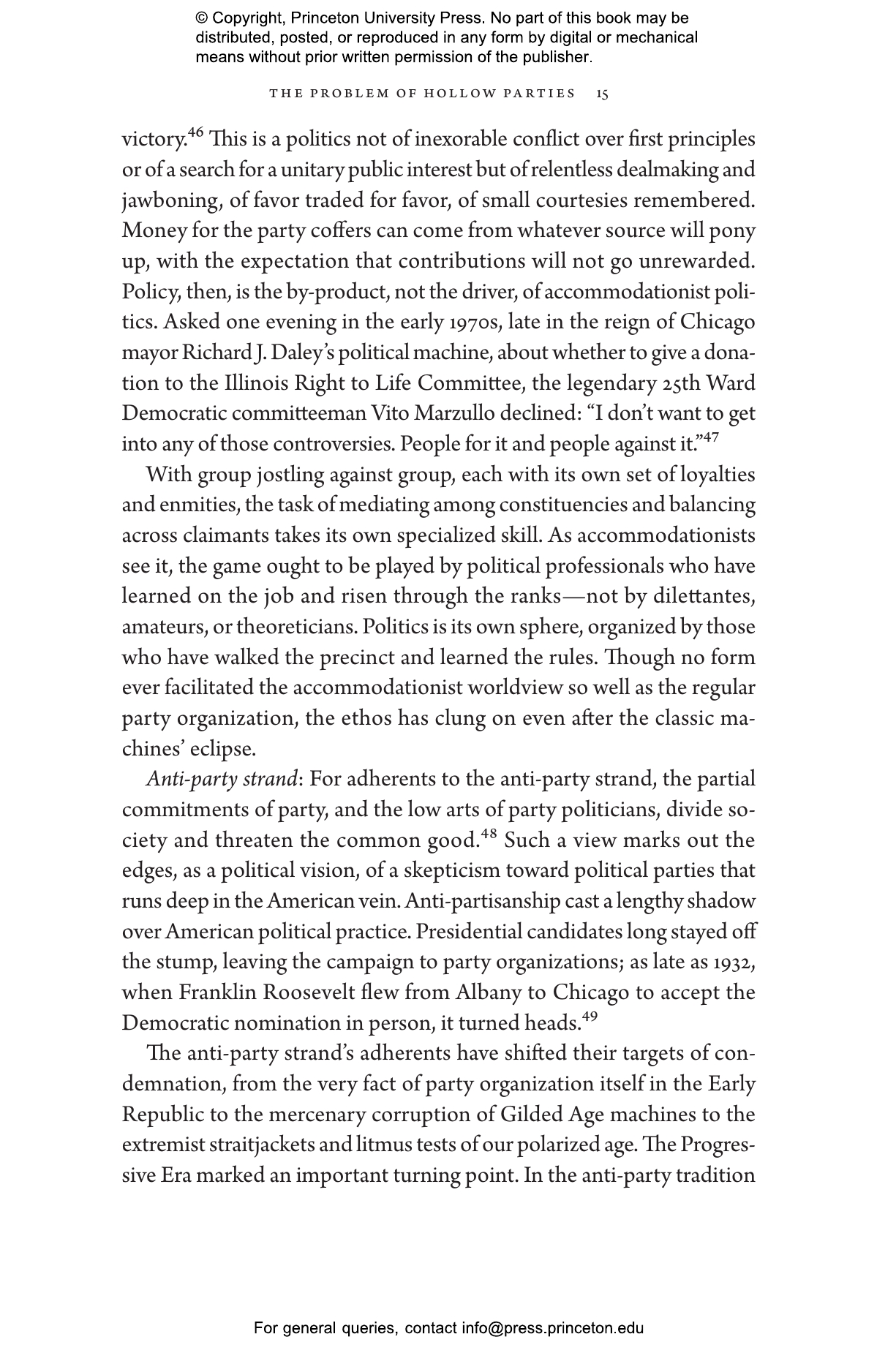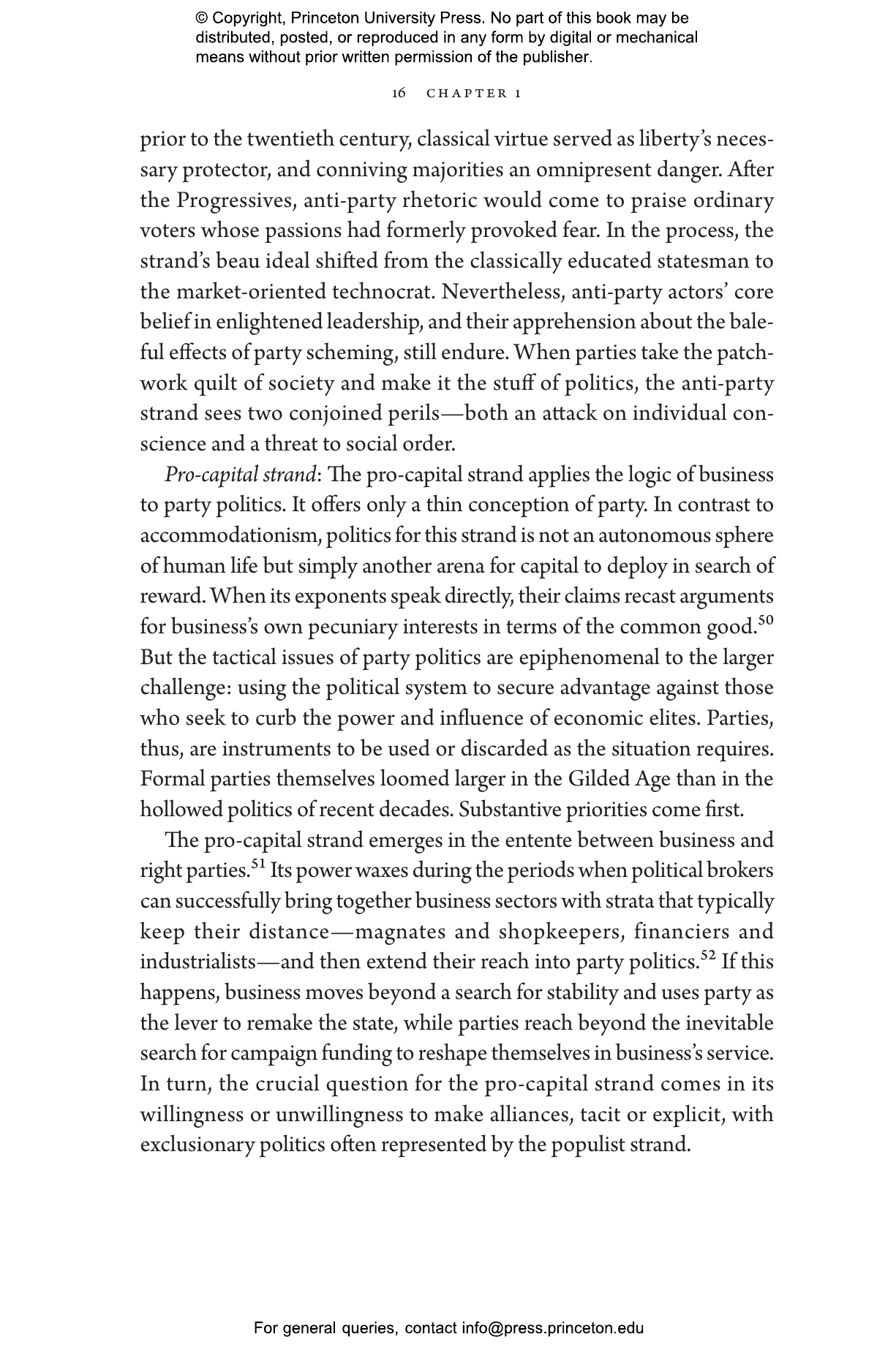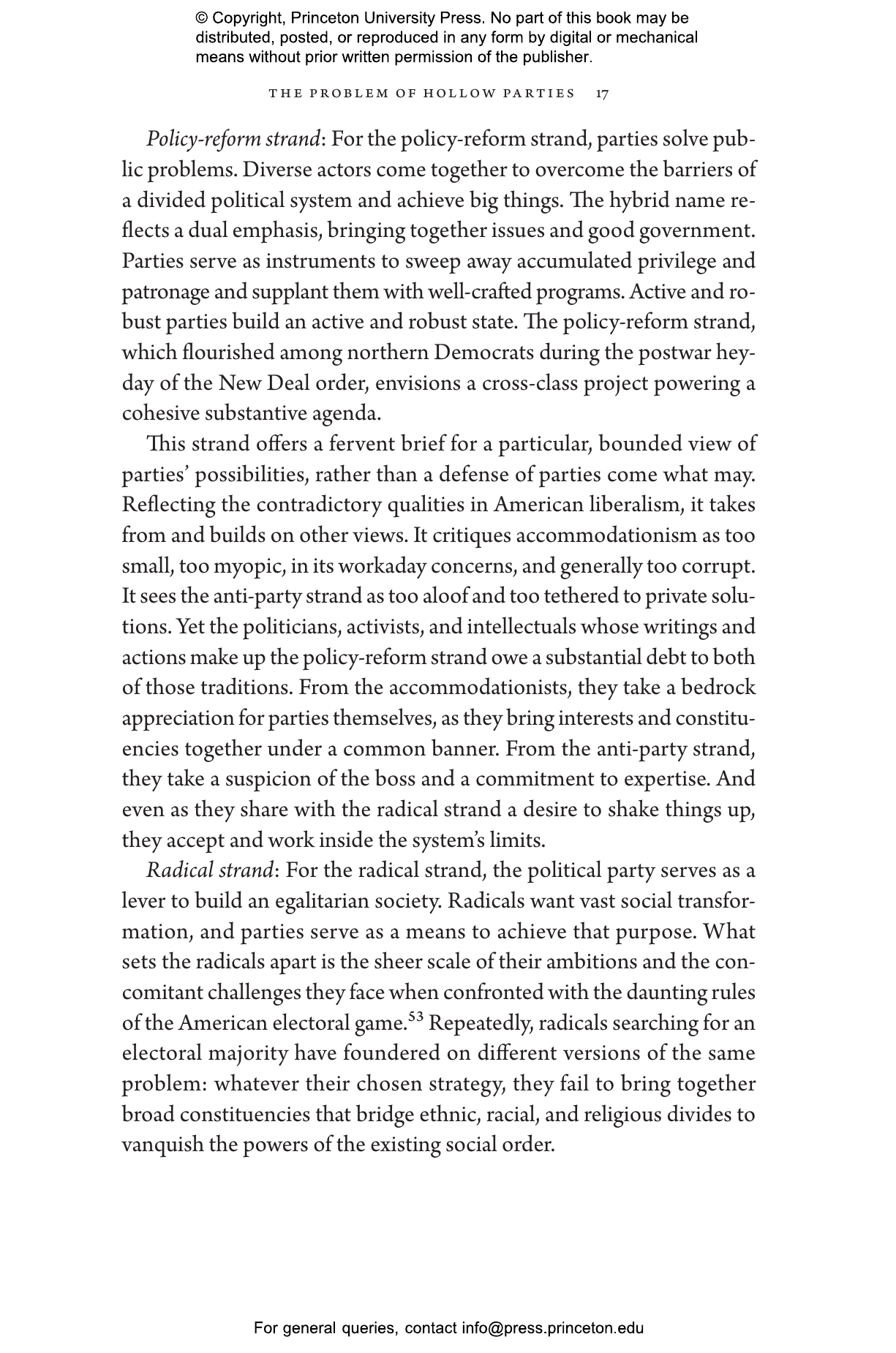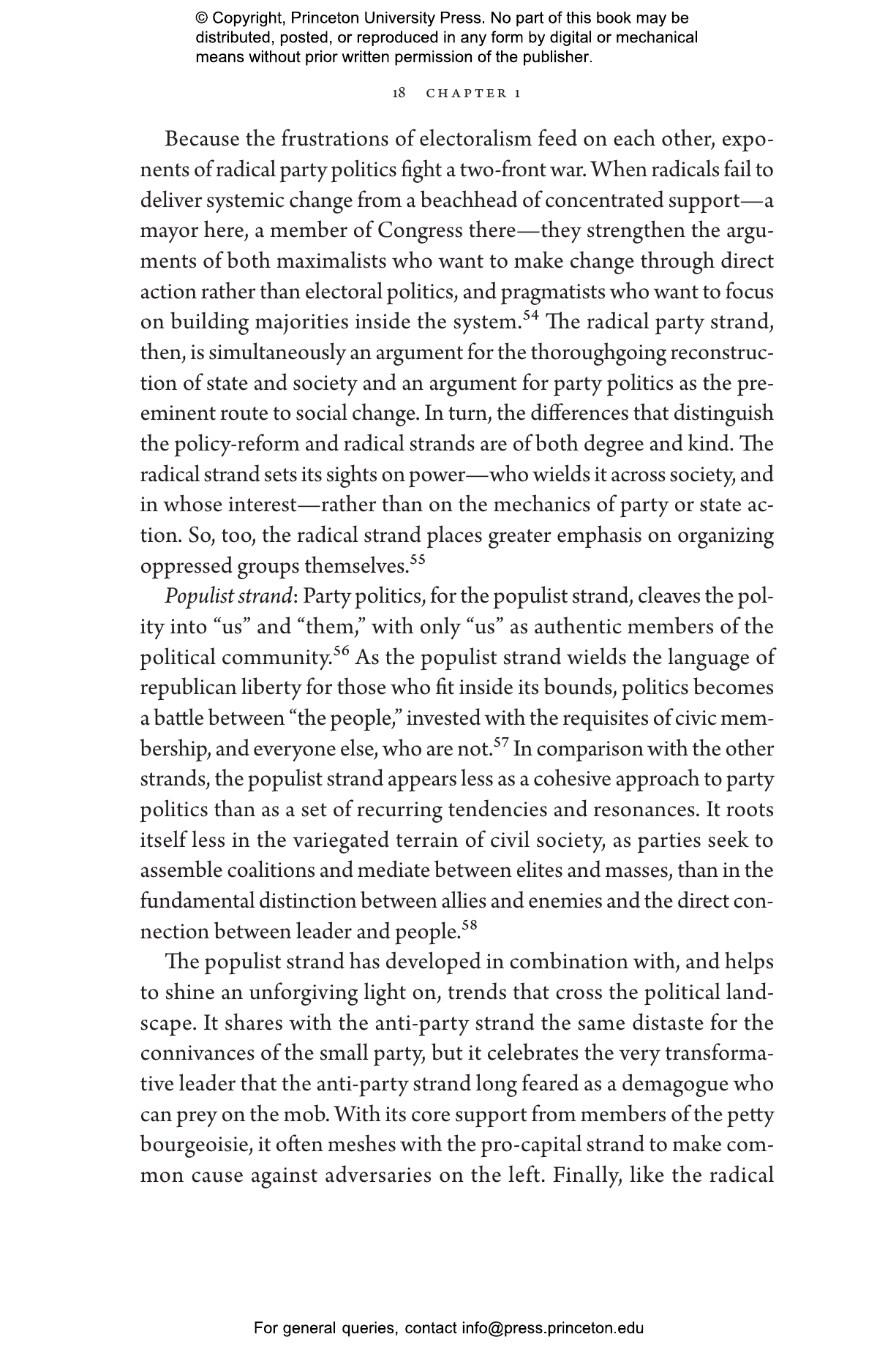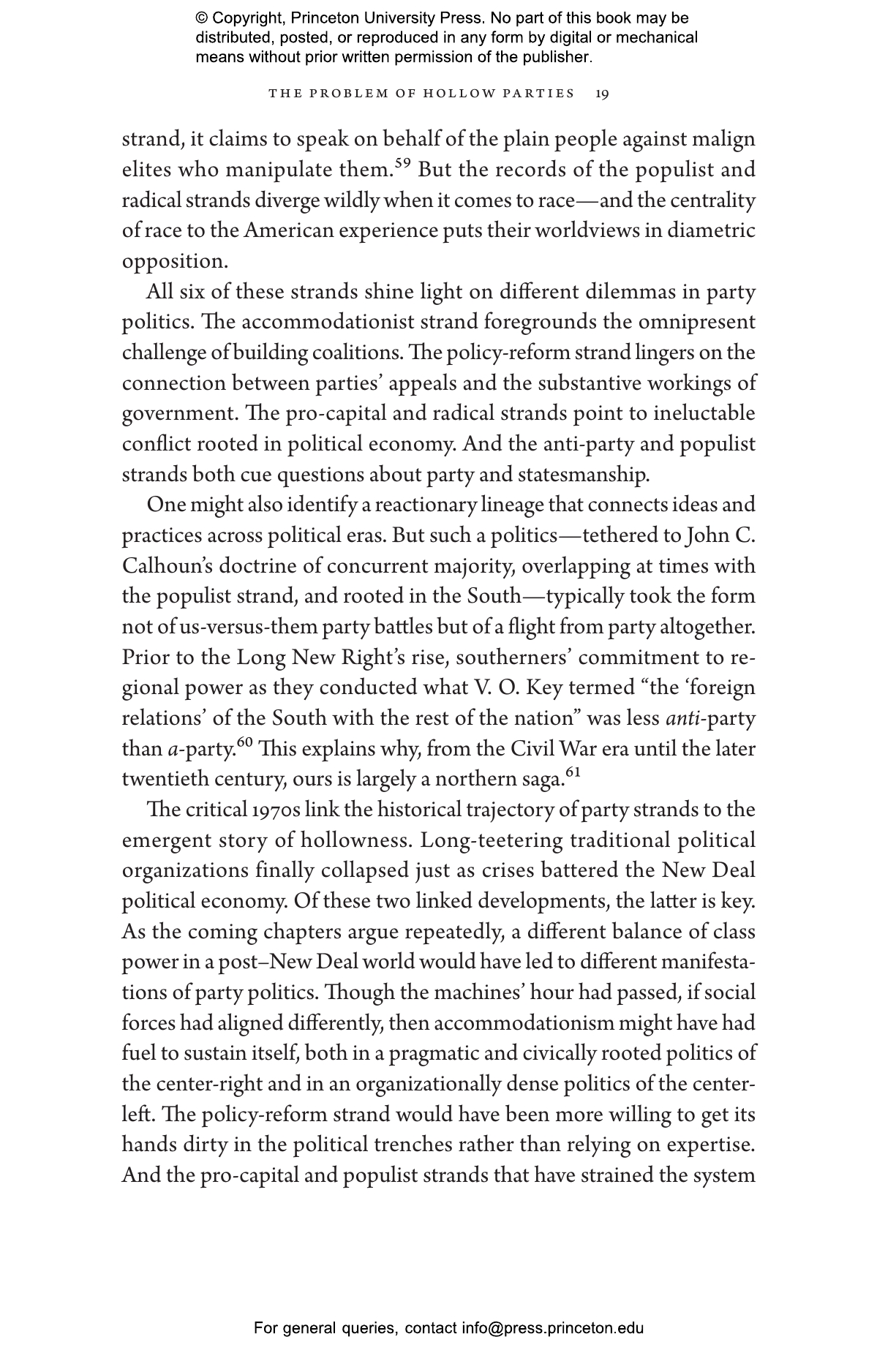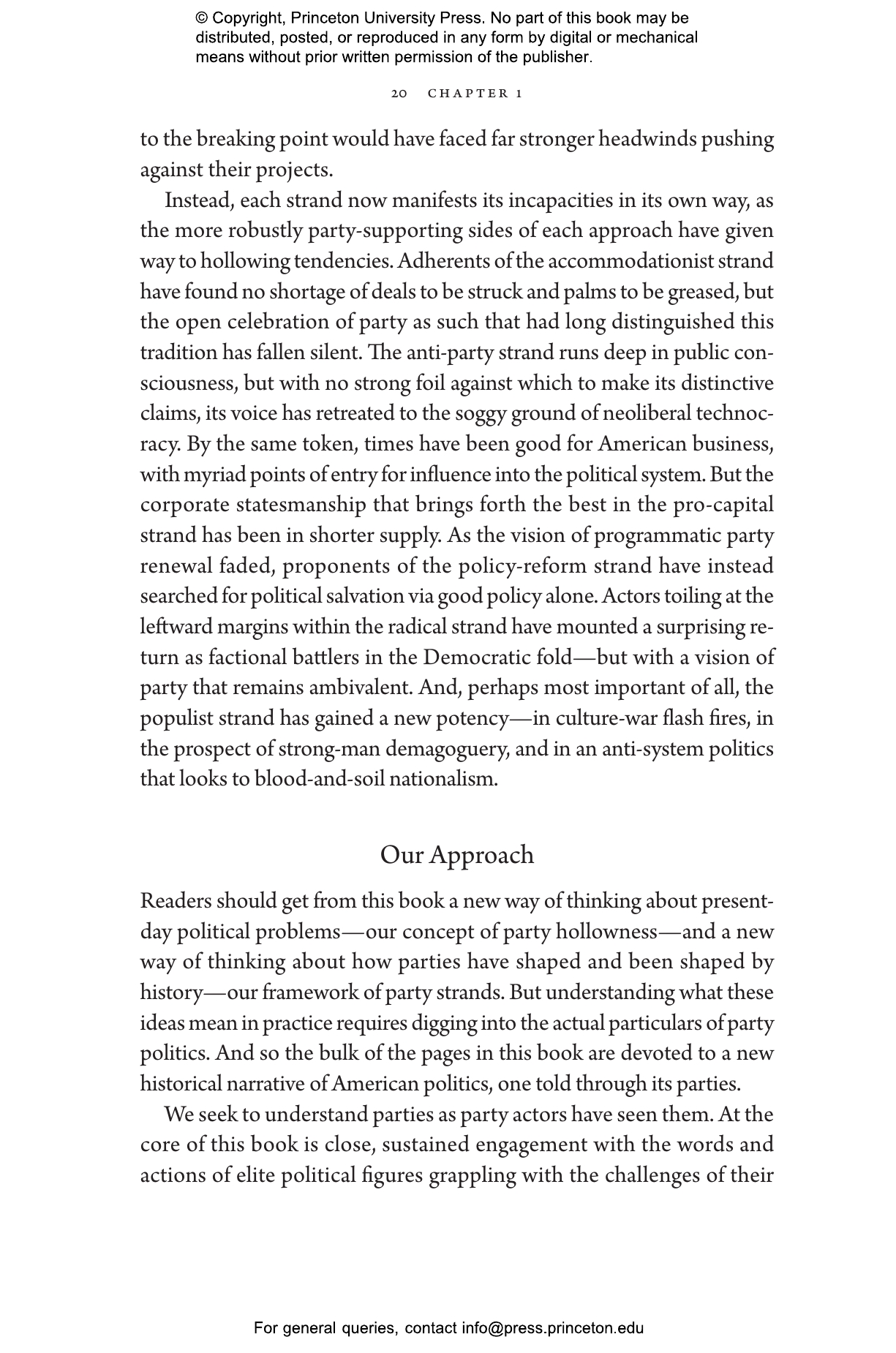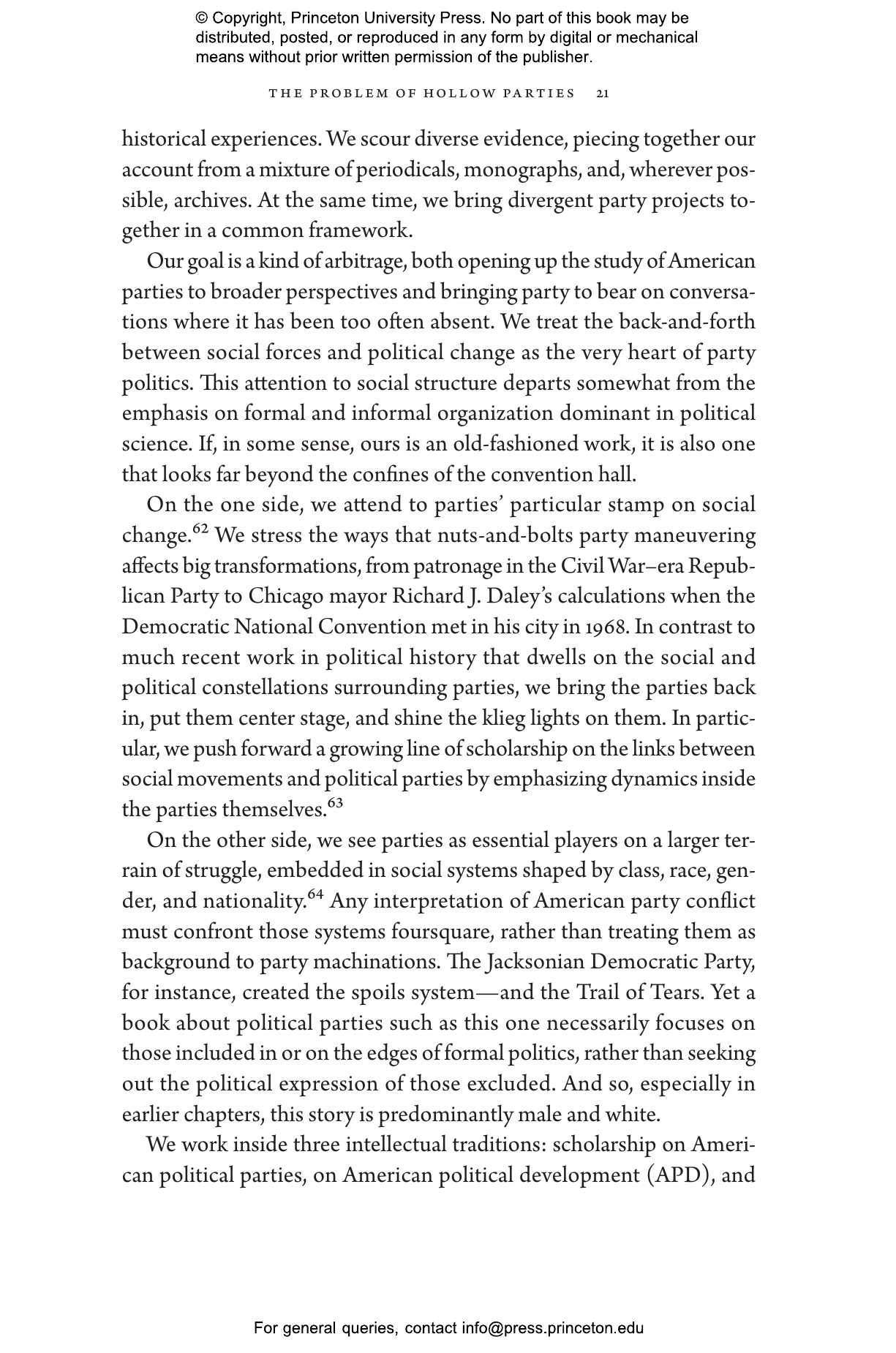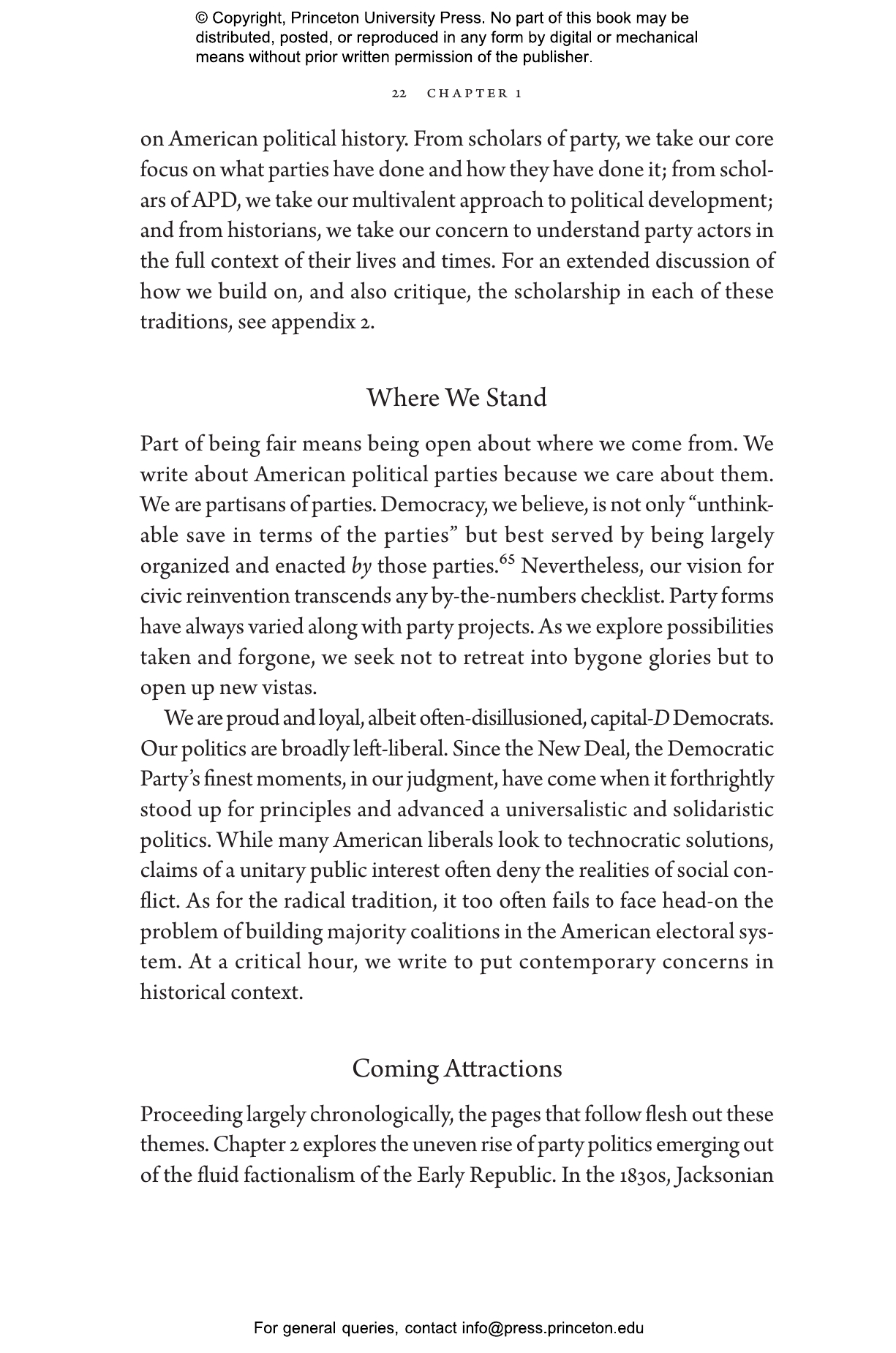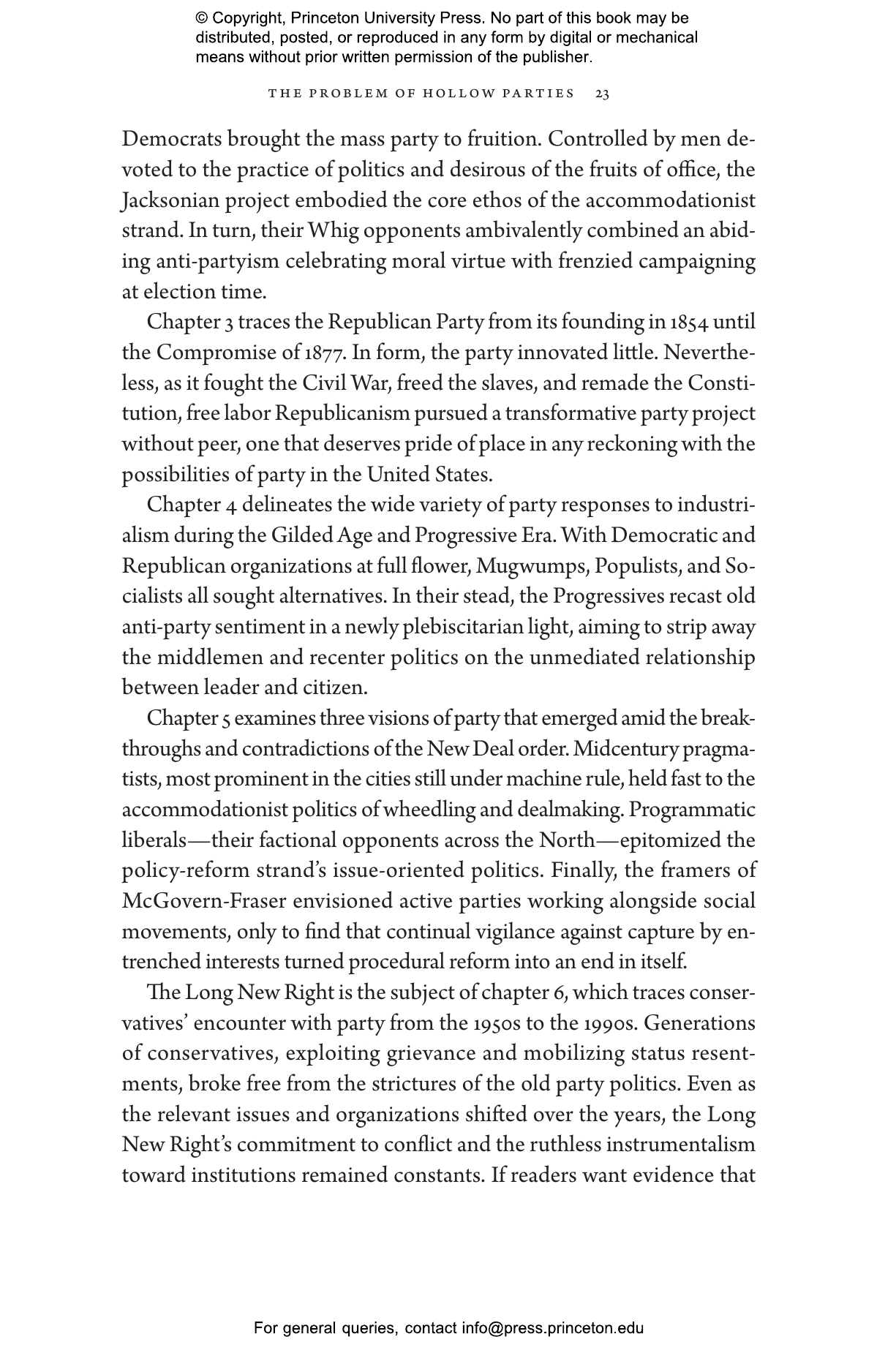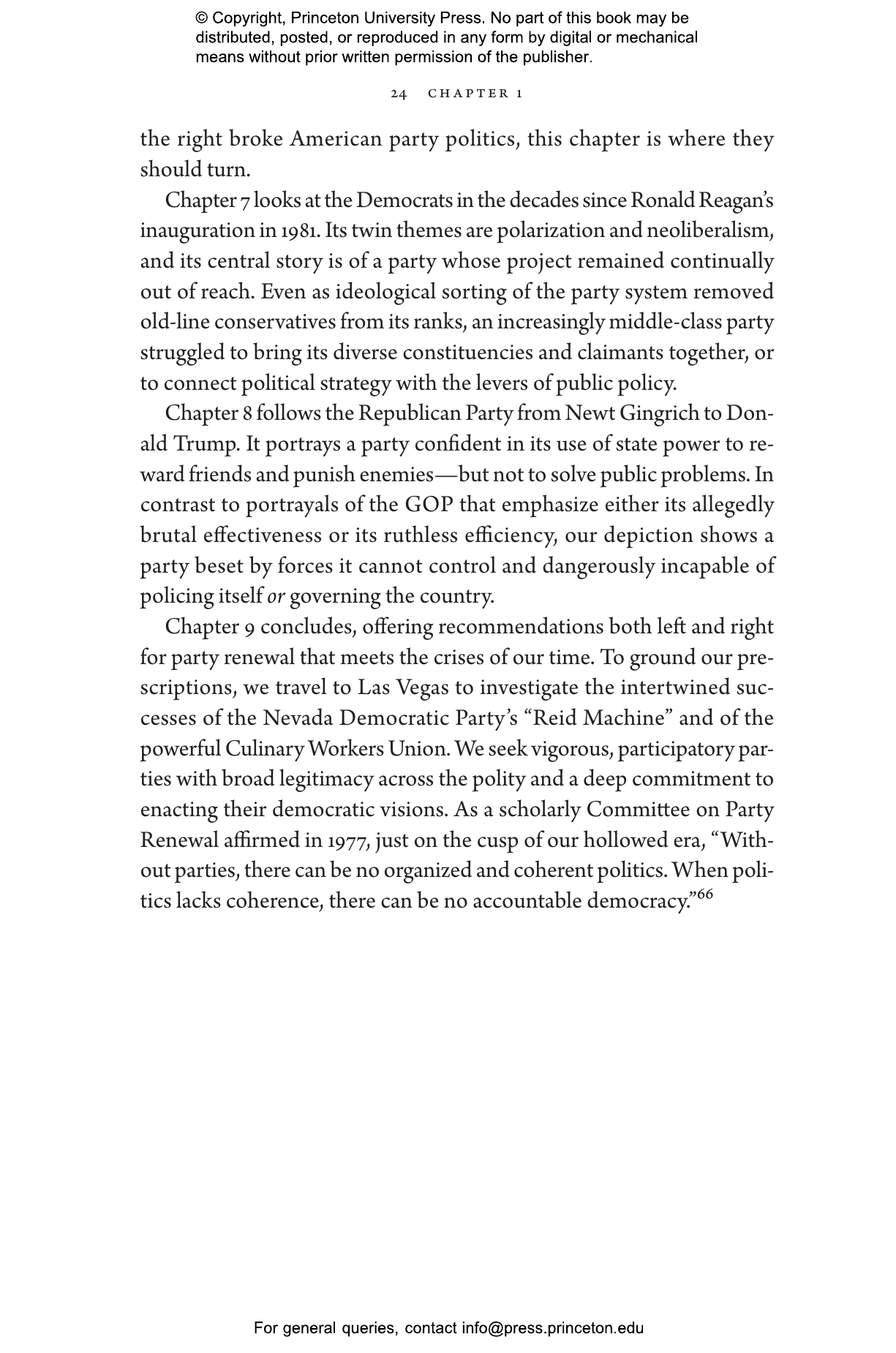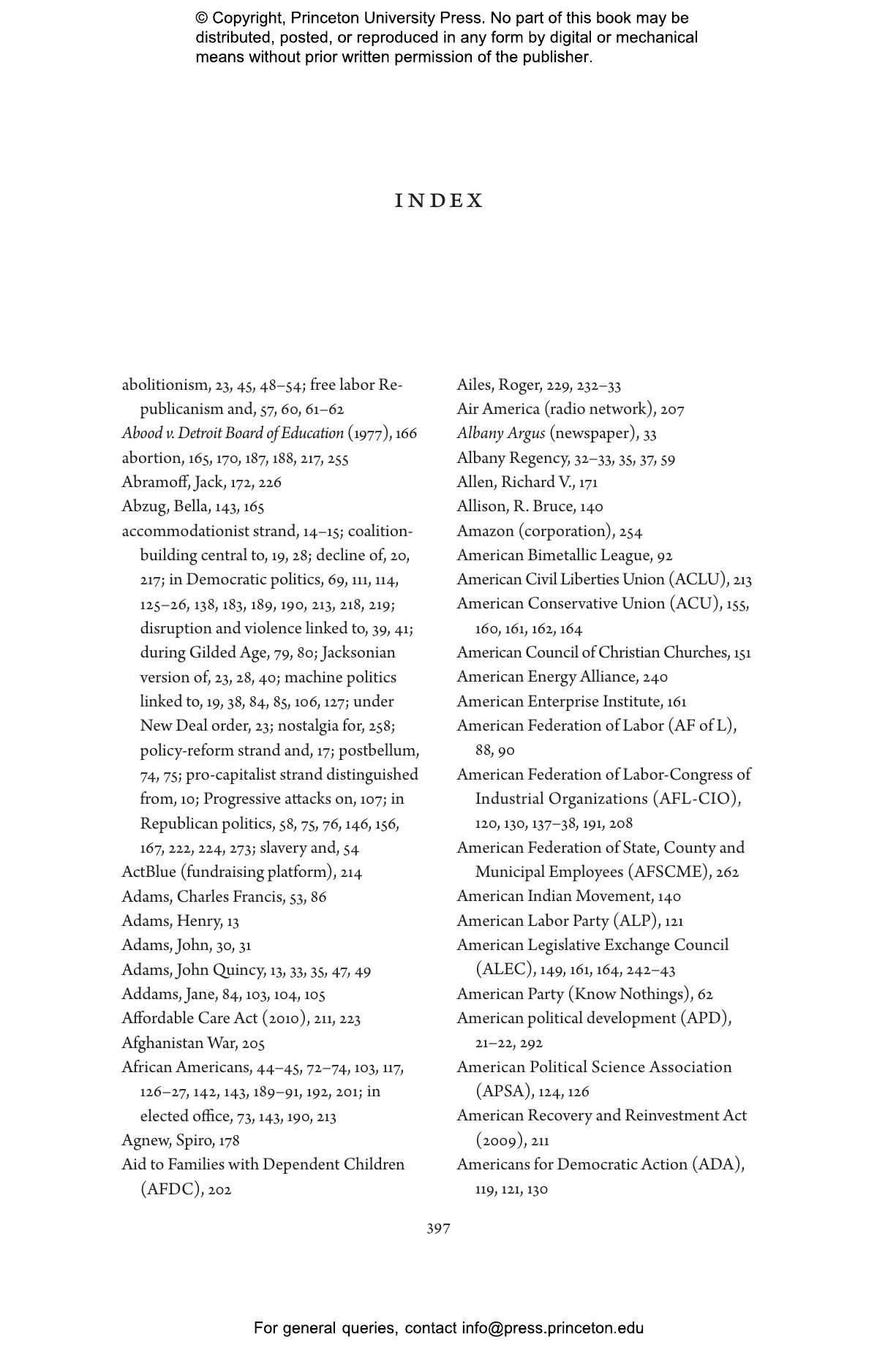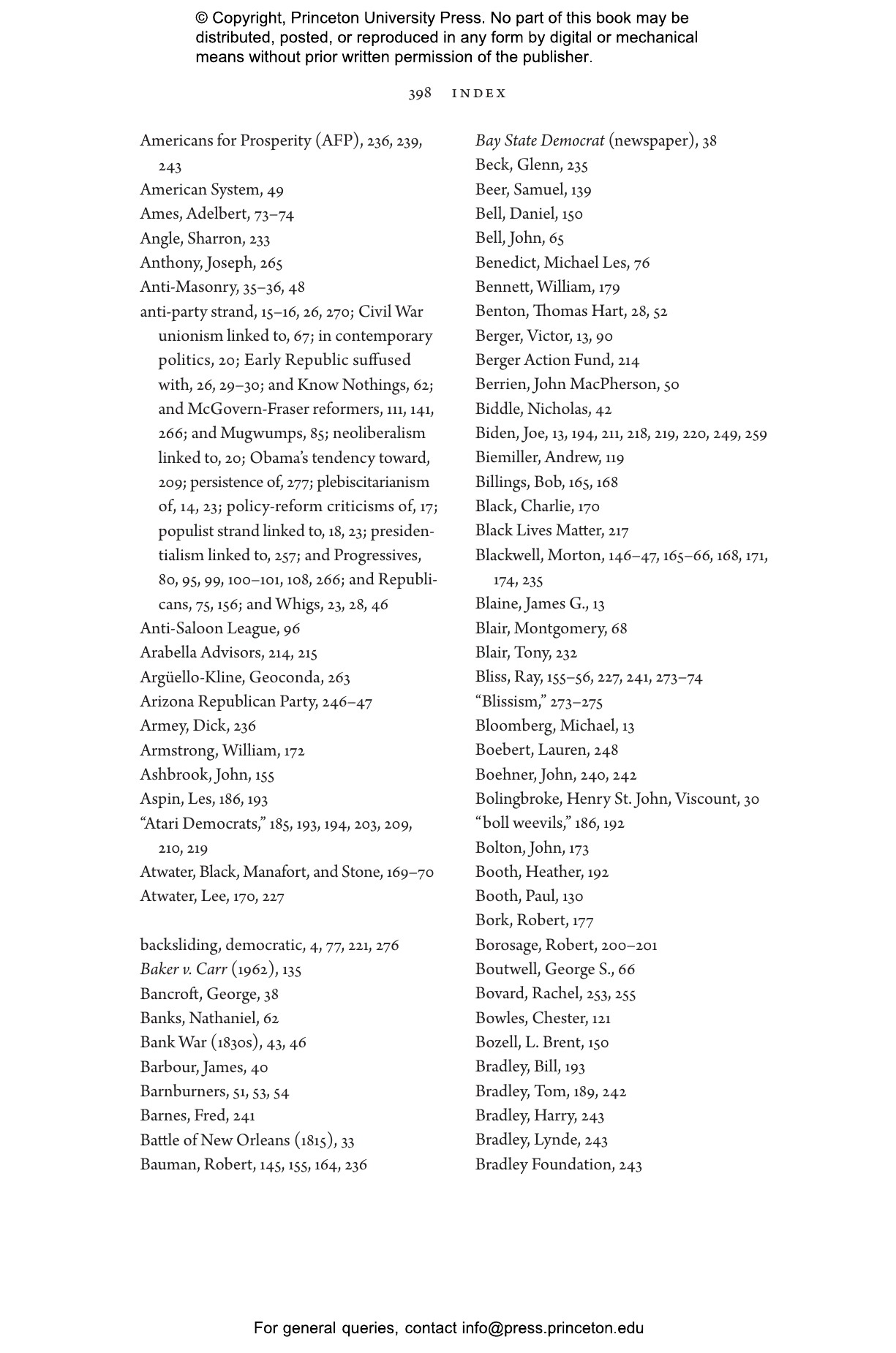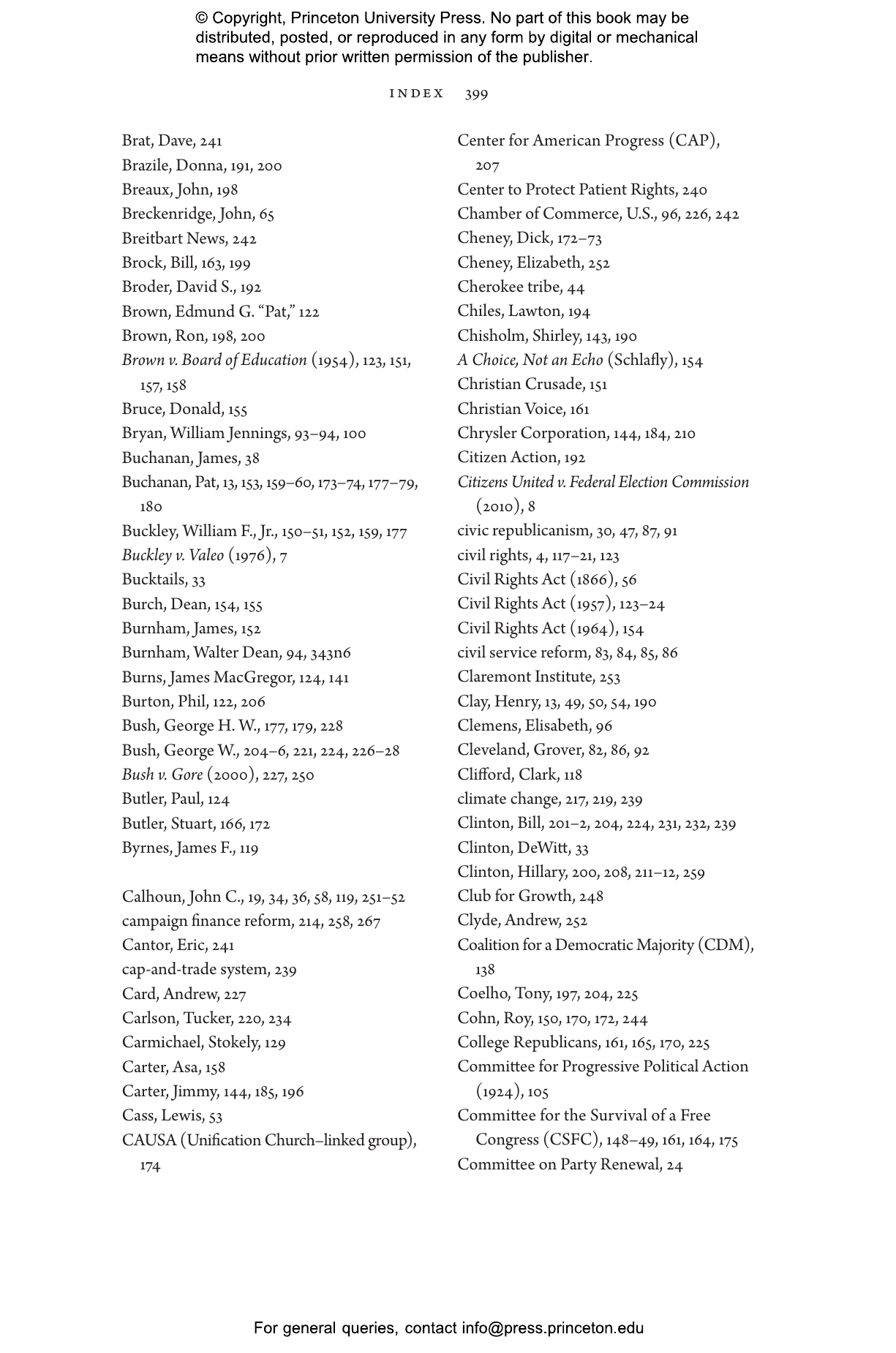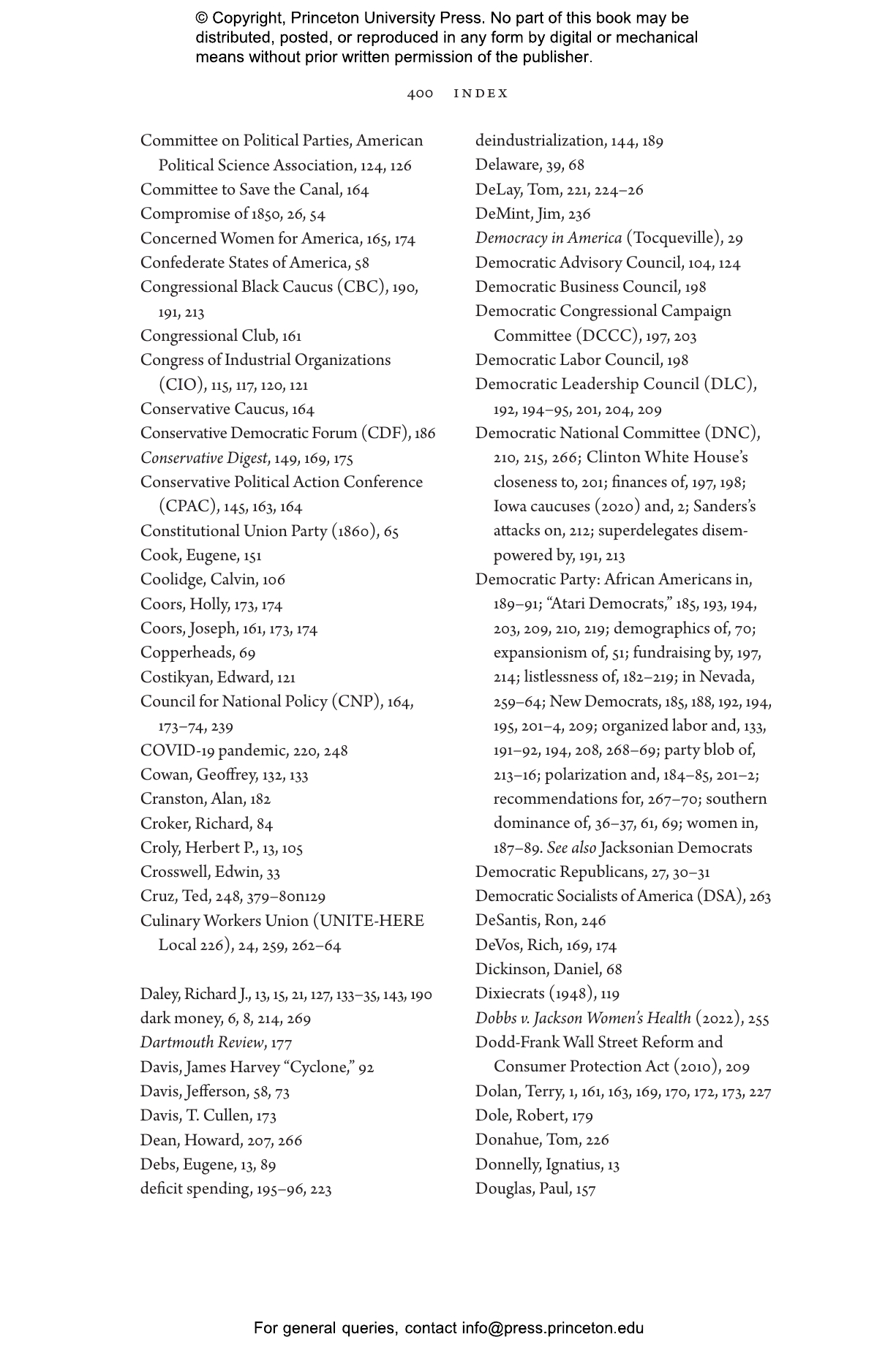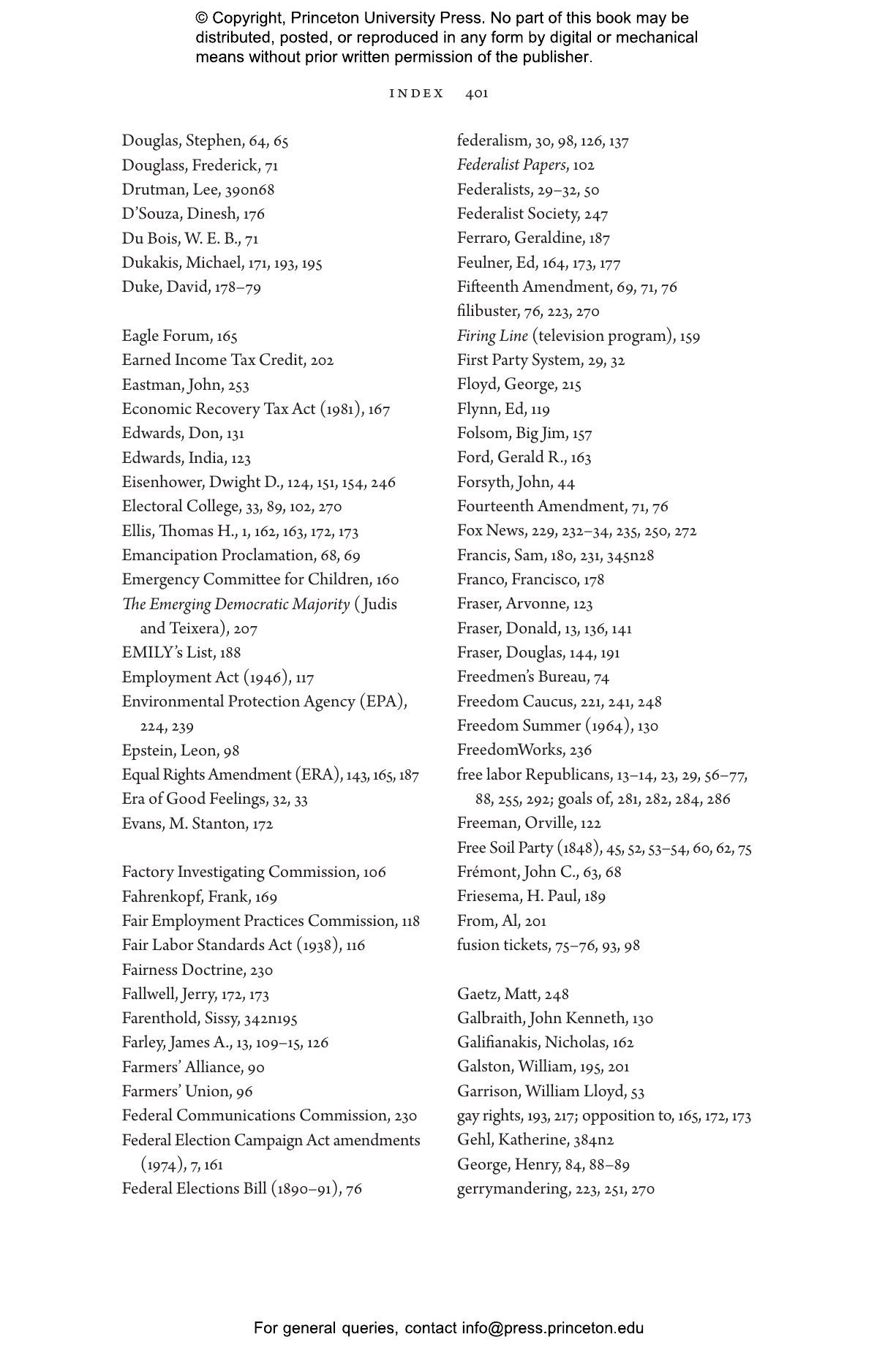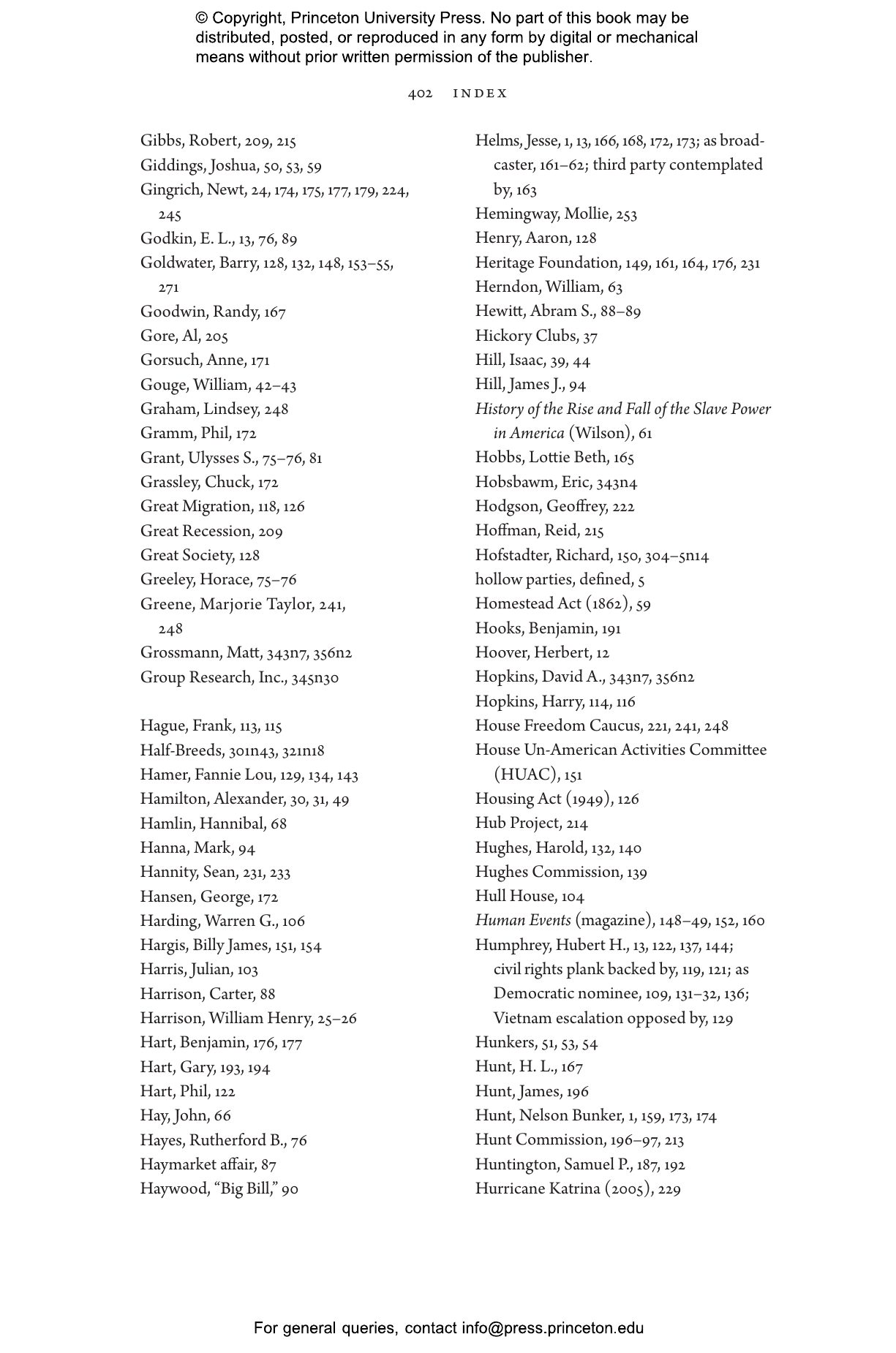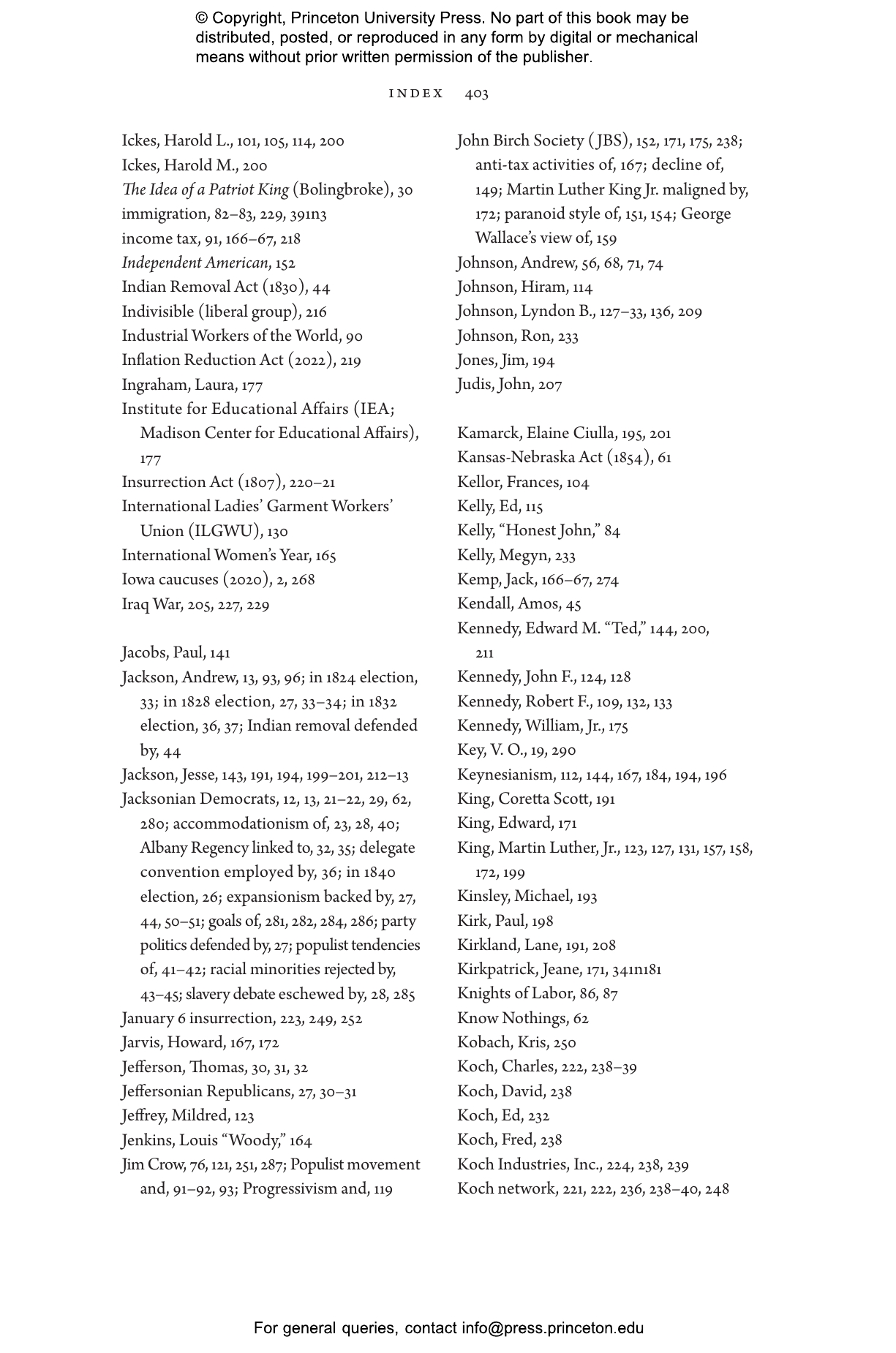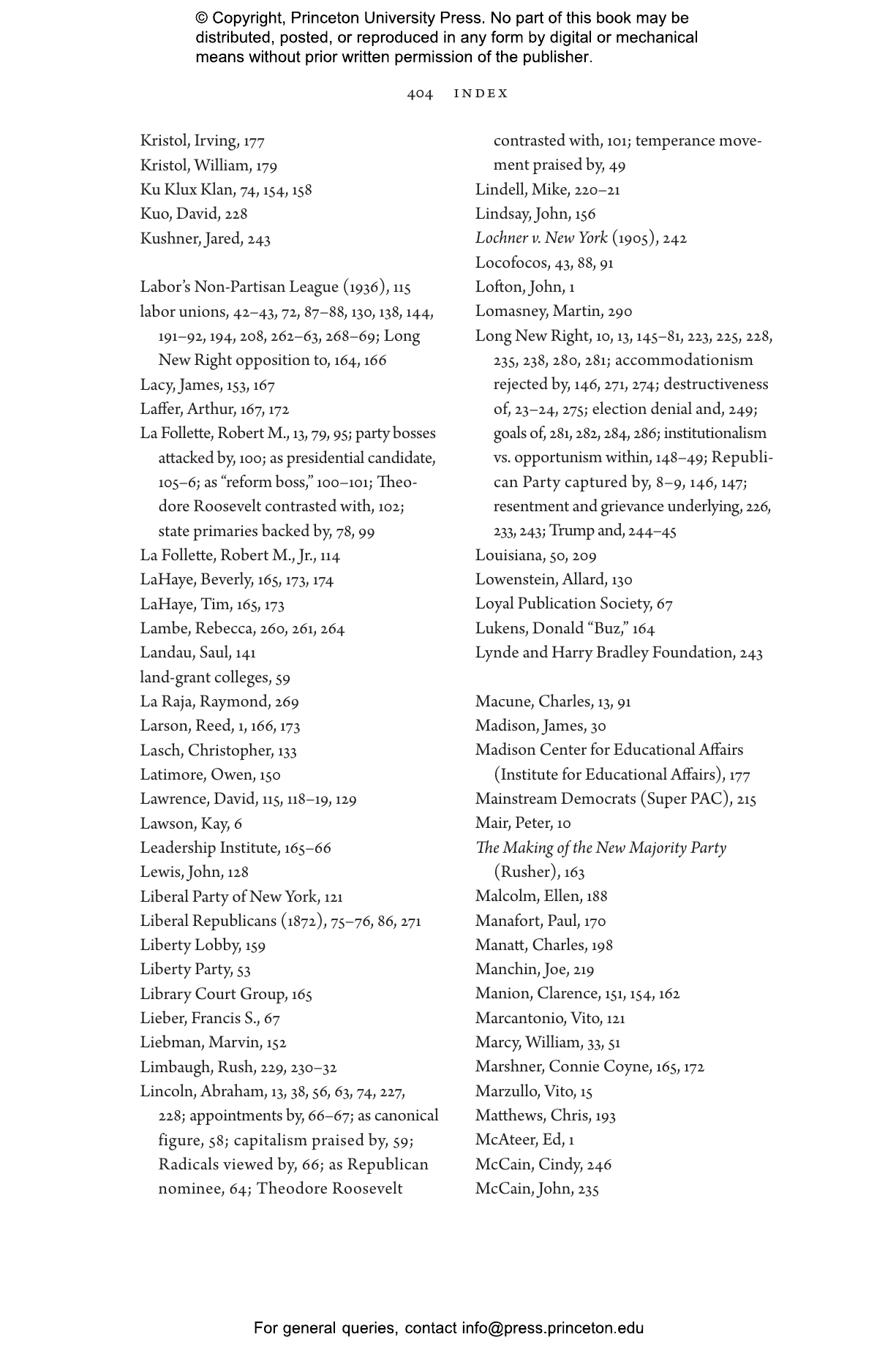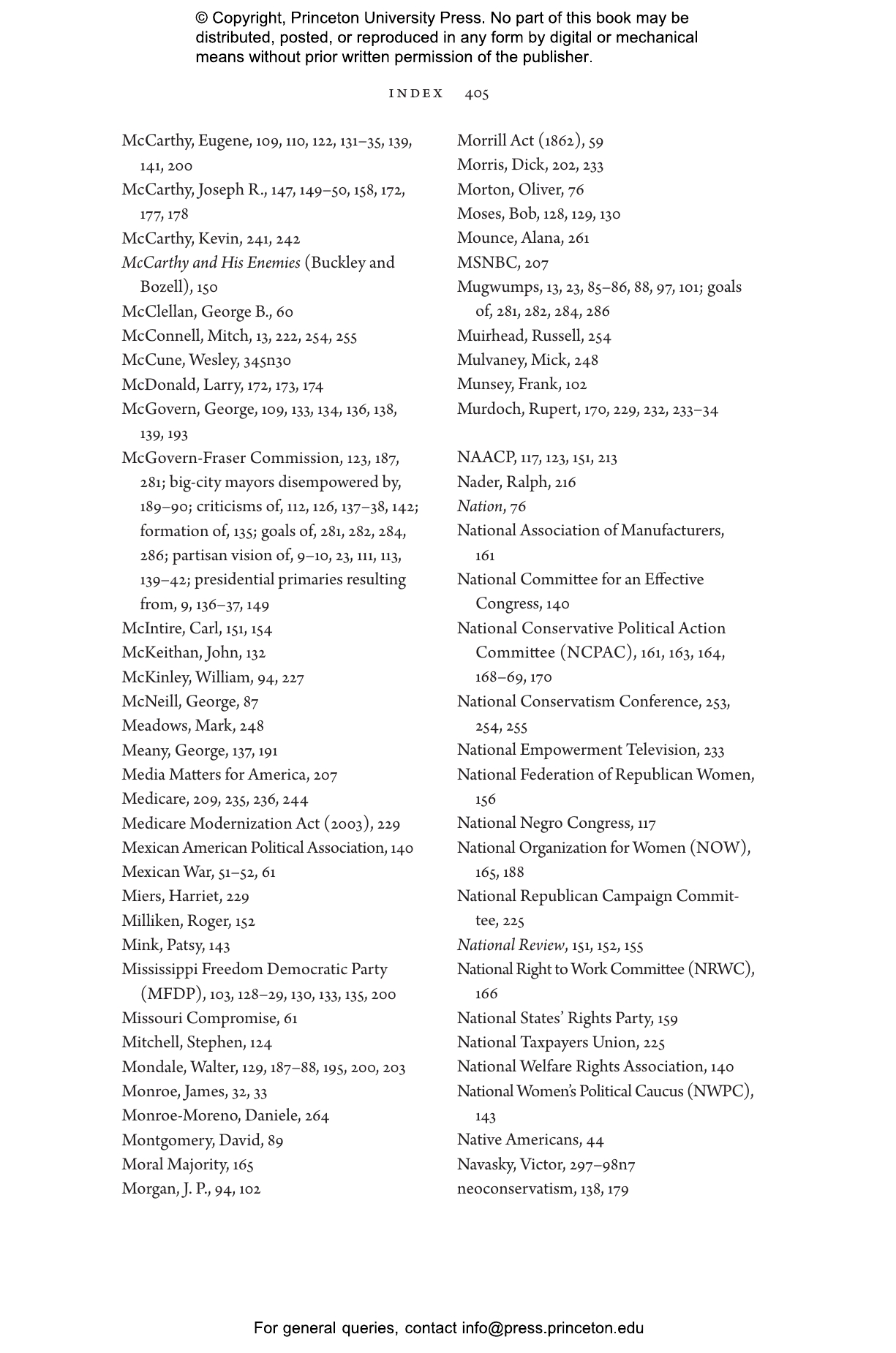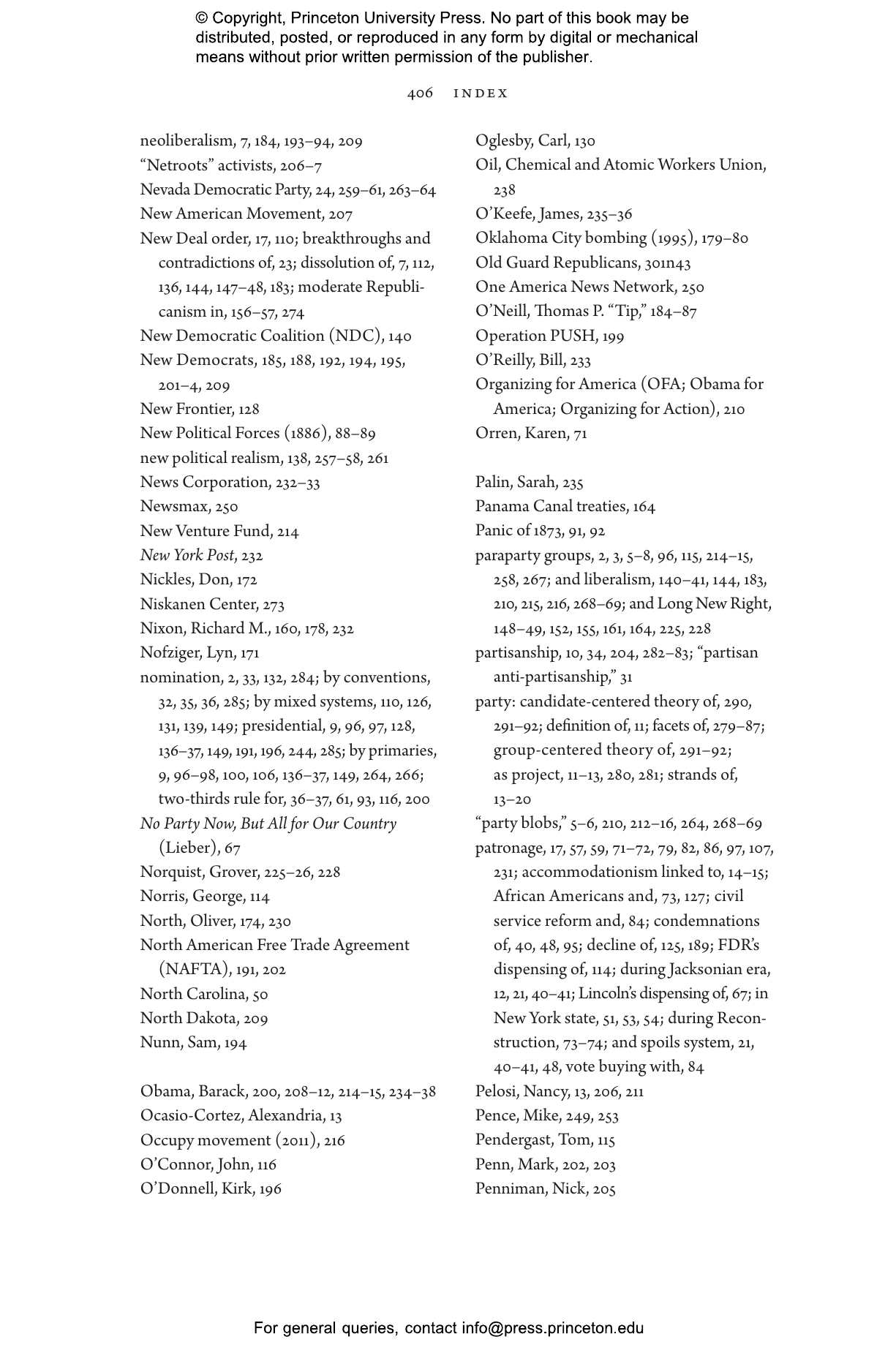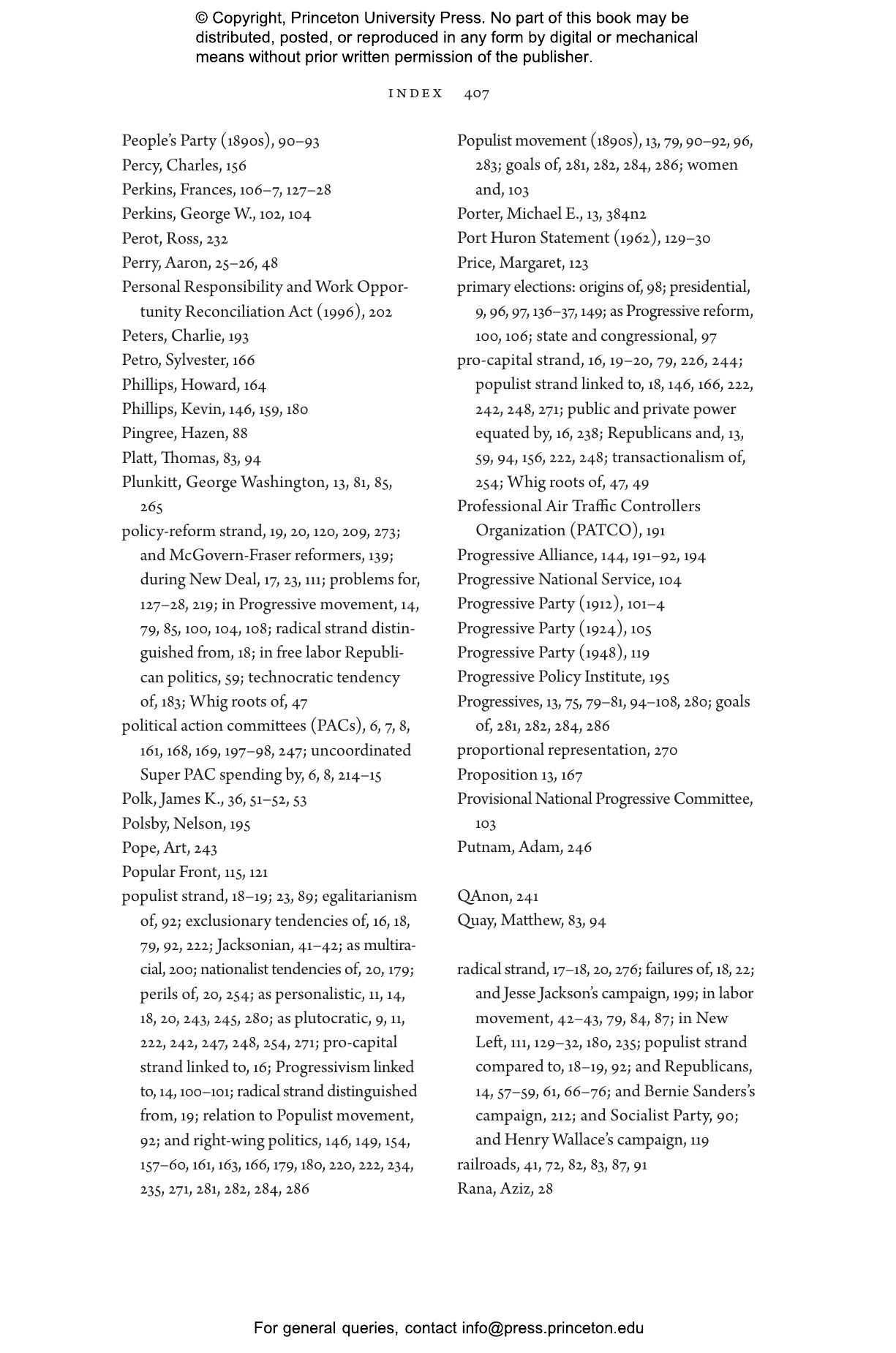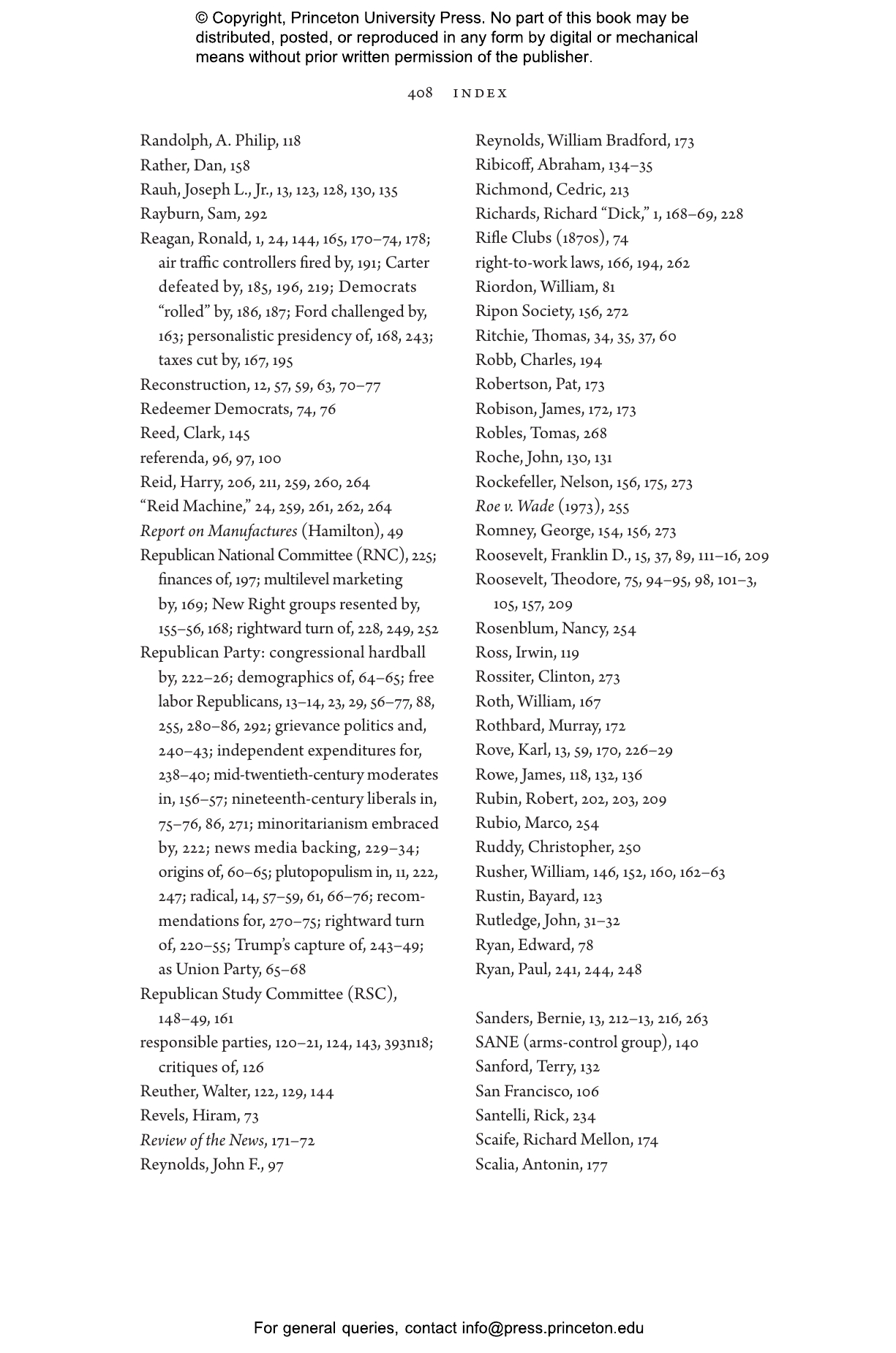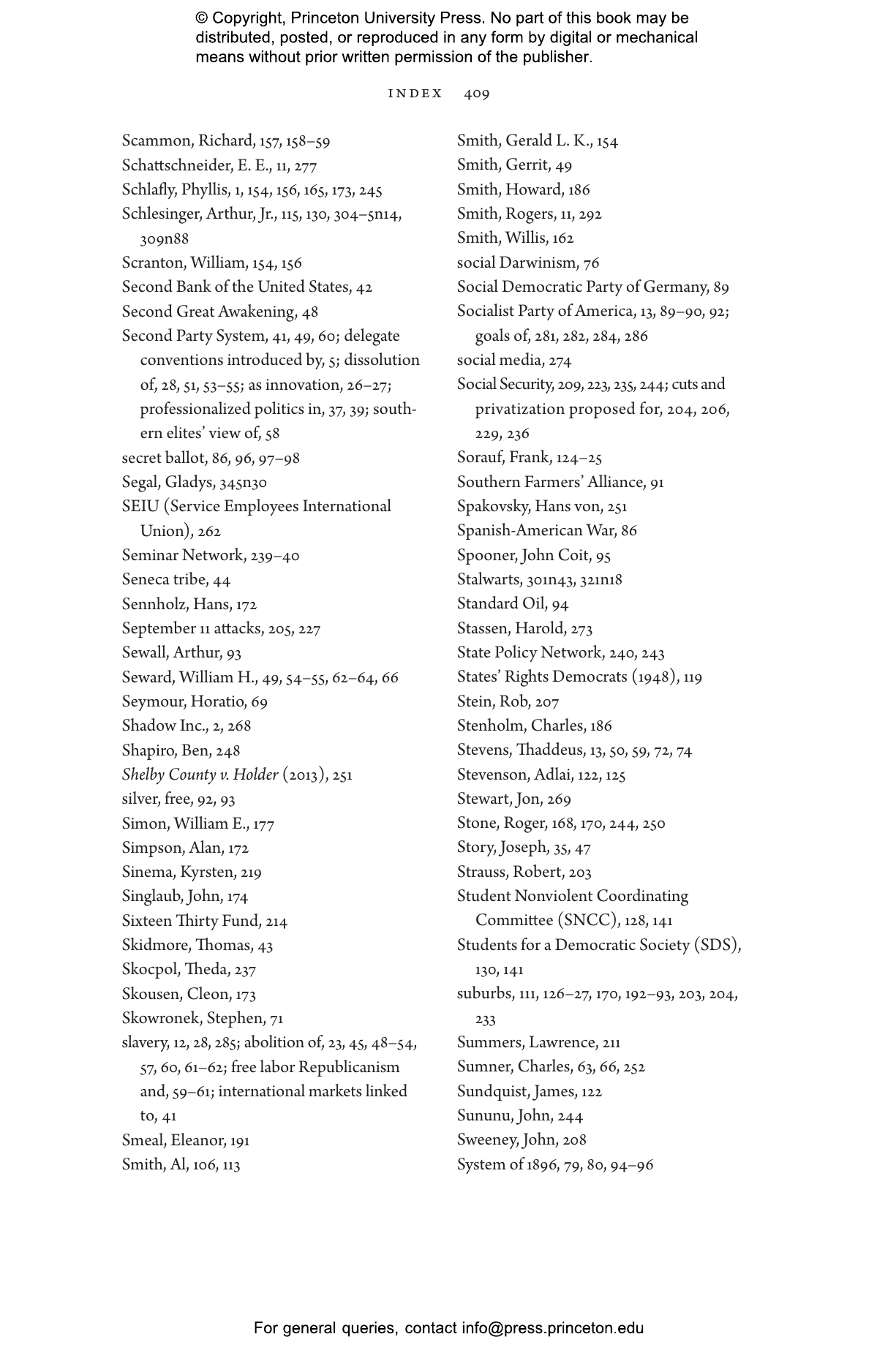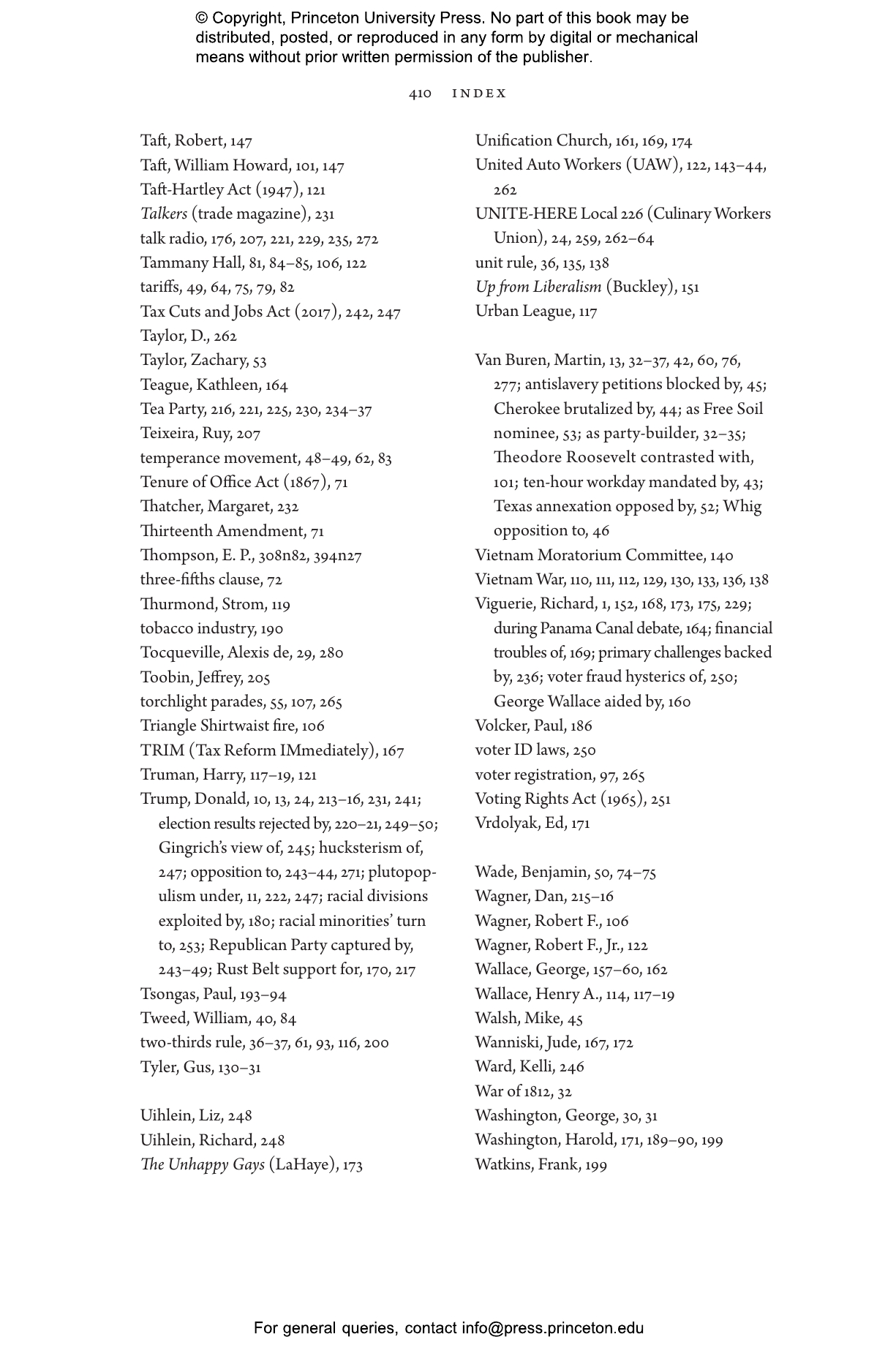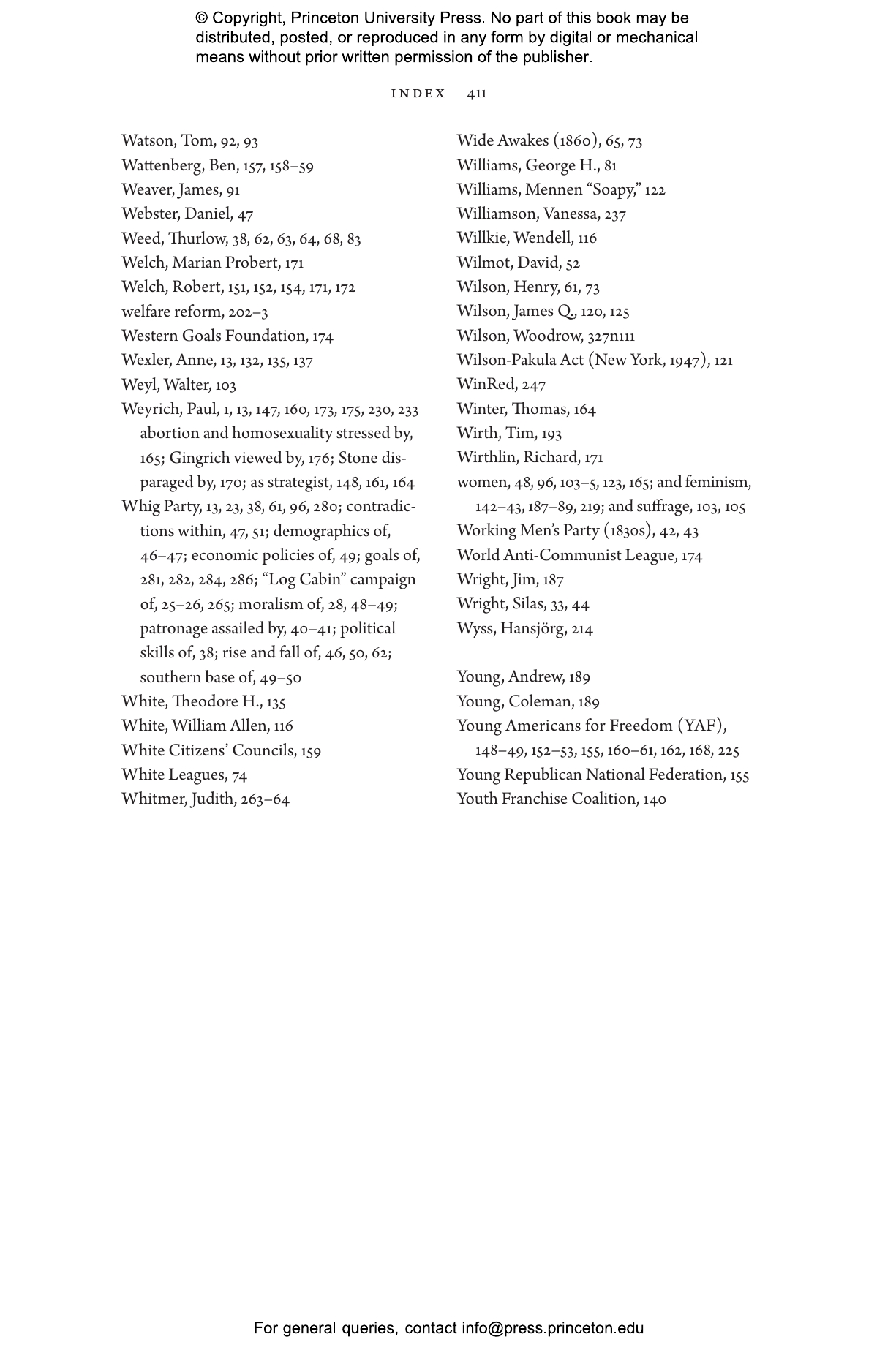America’s political parties are hollow shells of what they could be, locked in a polarized struggle for power and unrooted as civic organizations. The Hollow Parties takes readers from the rise of mass party politics in the Jacksonian era through the years of Barack Obama and Donald Trump. Today’s parties, at once overbearing and ineffectual, have emerged from the interplay of multiple party traditions that reach back to the Founding.
Daniel Schlozman and Sam Rosenfeld paint unforgettable portraits of figures such as Martin Van Buren, whose pioneering Democrats invented the machinery of the mass political party, and Abraham Lincoln and other heroic Republicans of that party’s first generation who stood up to the Slave Power. And they show how today’s fractious party politics arose from the ashes of the New Deal order in the 1970s. Activists in the wake of the 1968 Democratic National Convention transformed presidential nominations but failed to lay the foundations for robust, movement-driven parties. Instead, modern American conservatism hollowed out the party system, deeming it a mere instrument for power.
Party hollowness lies at the heart of our democratic discontents. With historical sweep and political acuity, The Hollow Parties offers powerful answers to pressing questions about how the nation’s parties became so dysfunctional—and how they might yet realize their promise.
"The problem is not Donald Trump. The problem is the Republican Party. It always has been. But how did the Republican Party get so weak that he could take it over? That’s not a story that begins in 2016 or 2015. It’s a story that begins decades ago. It’s a story that the political scientist Daniel Schlozman and Sam Rosenfeld tell in their new book, The Hollow Parties."—Ezra Klein, New York Times
"[An] insightful book. . . . Schlozman and Rosenfeld are unquestionably right that political parties in the United States deserve more thought and more appreciation. Even if solving the problems of today’s parties is not straightforward, their book is an important step in making the parties, and maybe our politics, better."—John Sides, Democracy
"[The Hollow Parties] explains the void at the center of the Democratic and Republican Parties."—Ian Ward, Politico
"The book serves as both a history of American political parties and an argument that their deterioration has done untold damage to the U.S., particularly that of the Republican Party. . . . [Schlozman and Rosenfeld] offer an interesting and nuanced perspective on how the GOP has become the party of Donald Trump in recent years."—Ben Jacobs, Washington Examiner
"In this engaging...book, Schlozman and Rosenfeld [take] readers on a journey of party degeneration from Martin Van Buren (“the Little Magician” who built the first American mass political party) to Ray Bliss, the Ohio operative, who rebuilt the Republican Party after Barry Goldwater’s landslide loss in 1964, Al From who founded the centrist Democratic Leadership Council in the 1980s, the Tea Party, and Donald Trump"—Kenneth S. Baer, Washington Monthly
"Who loves political parties? Daniel Schlozman and Sam Rosenfeld do. In The Hollow Parties, [they] defend the tradition of official party-building in America, tracing the rise and fall of different factions and crediting partisan organizing with social cohesion."—Dave Weigel, Semafor
"What sets this book apart from others about American political parties is its sense of urgency. [Schlozman and Rosenfeld] offer a historic perspective of the present-day political dysfunction. . . . A work of impressive scholarship."—Library Journal
"[The Hollow Parties] should be widely read and debated. . . . Highly-recommended."—Choice
“Schlozman and Rosenfeld provide an ambitious and novel account of the country’s contemporary political crises: the authoritarian threat from the Republican right, the listlessness of the Democrats, and the widening gulf between them. Provocative and insightful, The Hollow Parties makes a powerful argument that the defense of American democracy requires parties to again become central institutional actors in civic life.”—David A. Bateman, author of Disenfranchising Democracy: Constructing the Electorate in the United States, the United Kingdom, and France
“This is a wonderful and necessary book rooted in a sense of urgency and a wise understanding of American history. The Hollow Parties argues persuasively and passionately that political parties are essential to a healthy democracy, and that their salvation lies not in raising gobs of money but in rooting themselves in the daily civic lives and bread-and-butter concerns of local communities. It’s also a joy to read a pathbreaking work of political science written in eloquent and elegant prose.”—E. J. Dionne Jr., author of Code Red: How Progressives and Moderates Can Unite to Save Our Country
“This masterful book marks a landmark and paradigm-shifting study of American political parties. It is ambitious in the best sense of the word and is an argument with which anyone interested in American politics will have to contend.”—Lily Geismer, author of Left Behind: The Democrats’ Failed Attempt to Solve Inequality
“The most sweeping and most incisive history of party organization I have ever read. Schlozman and Rosenfeld have crafted a narrative that captures the drama and nuances of political behavior with the kind of zestful eloquence found in the work of the best historians. Nearly every page includes observations that made me reflect anew about matters I have been writing and teaching about for a long time. This is a truly impressive book.”—Michael Kazin, author of What It Took to Win: A History of the Democratic Party
“A sweeping, original, and deeply persuasive account of a hidden hinge of American democracy: political parties. To understand why and how our politics ended up where they are today, read this book.”—Daniel Ziblatt, coauthor of Tyranny of the Minority: Why American Democracy Reached the Breaking Point
